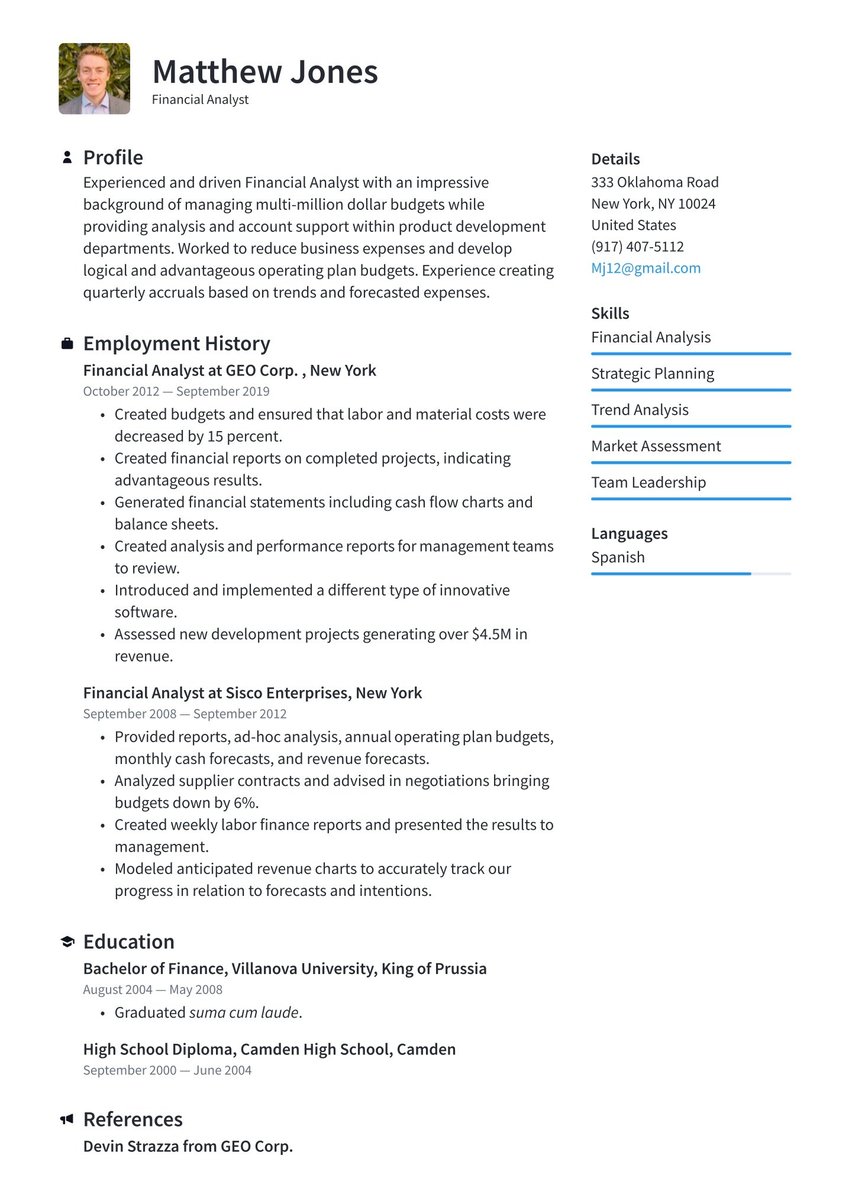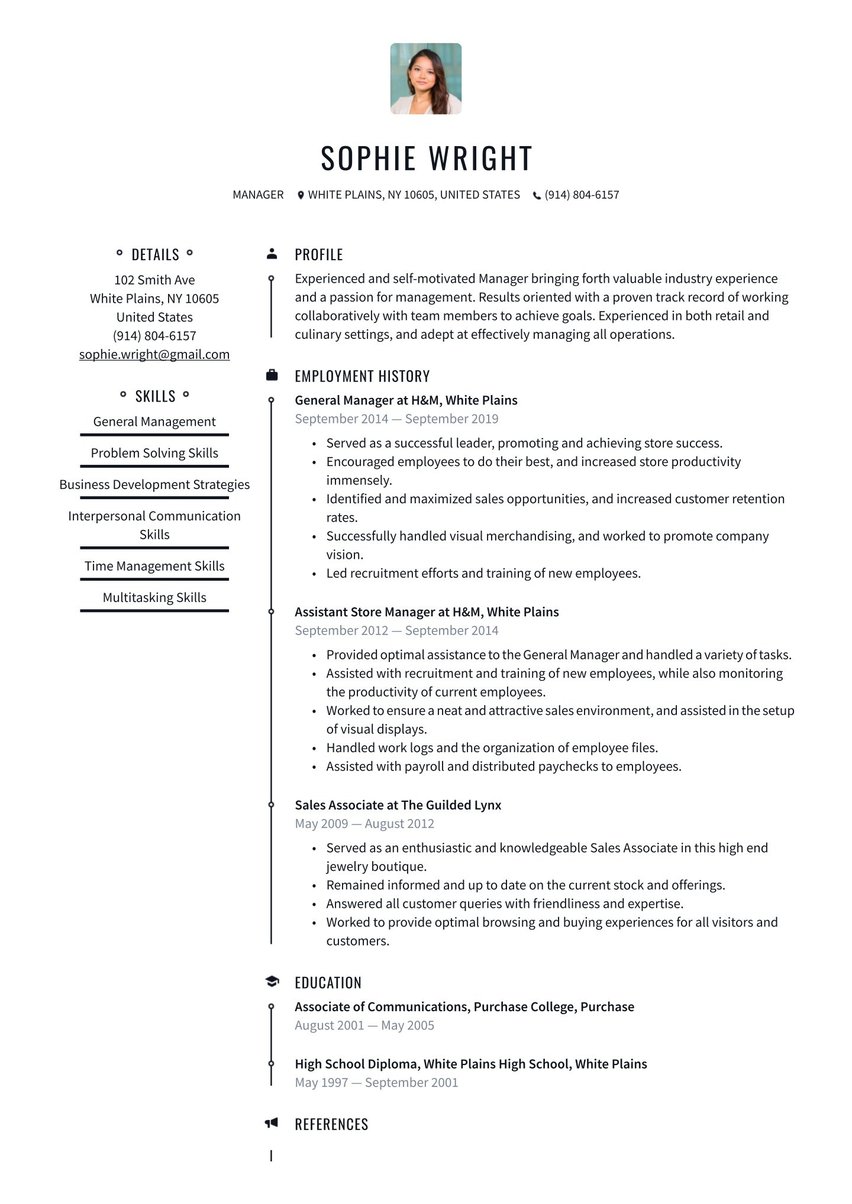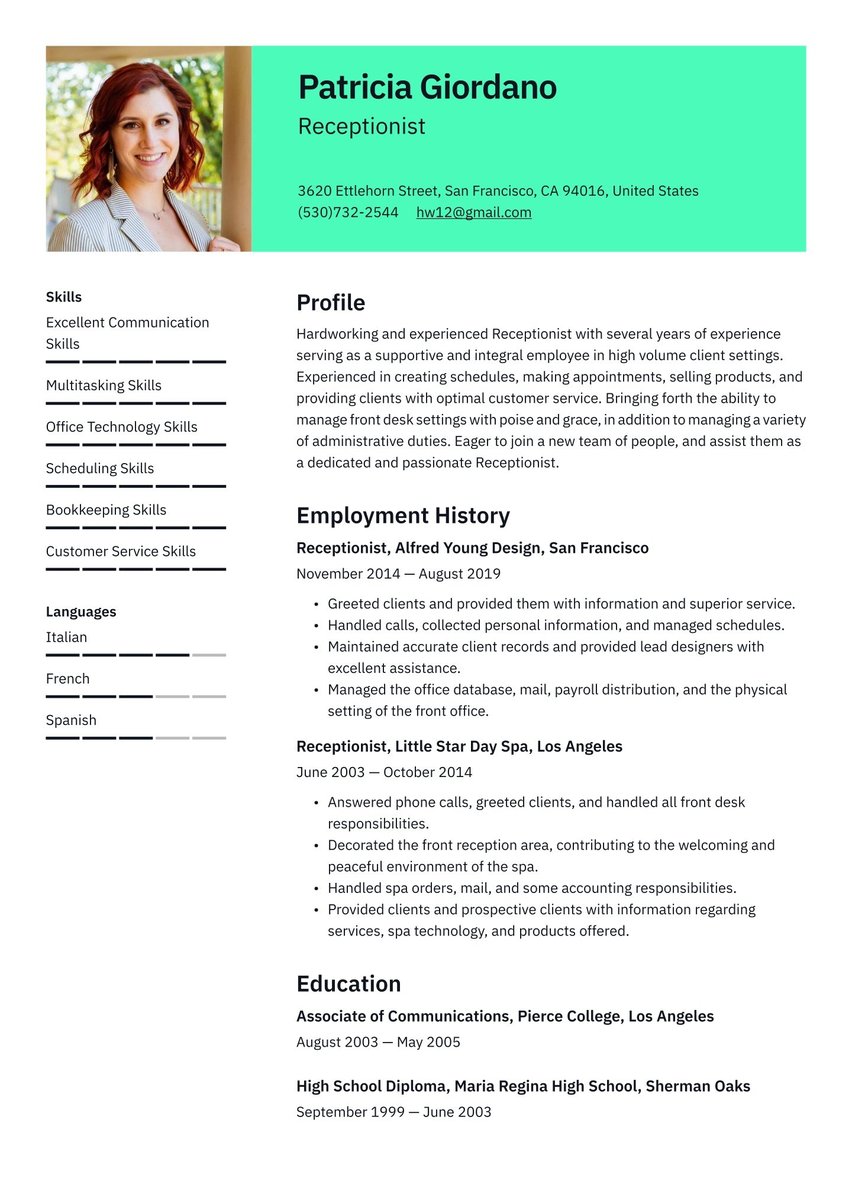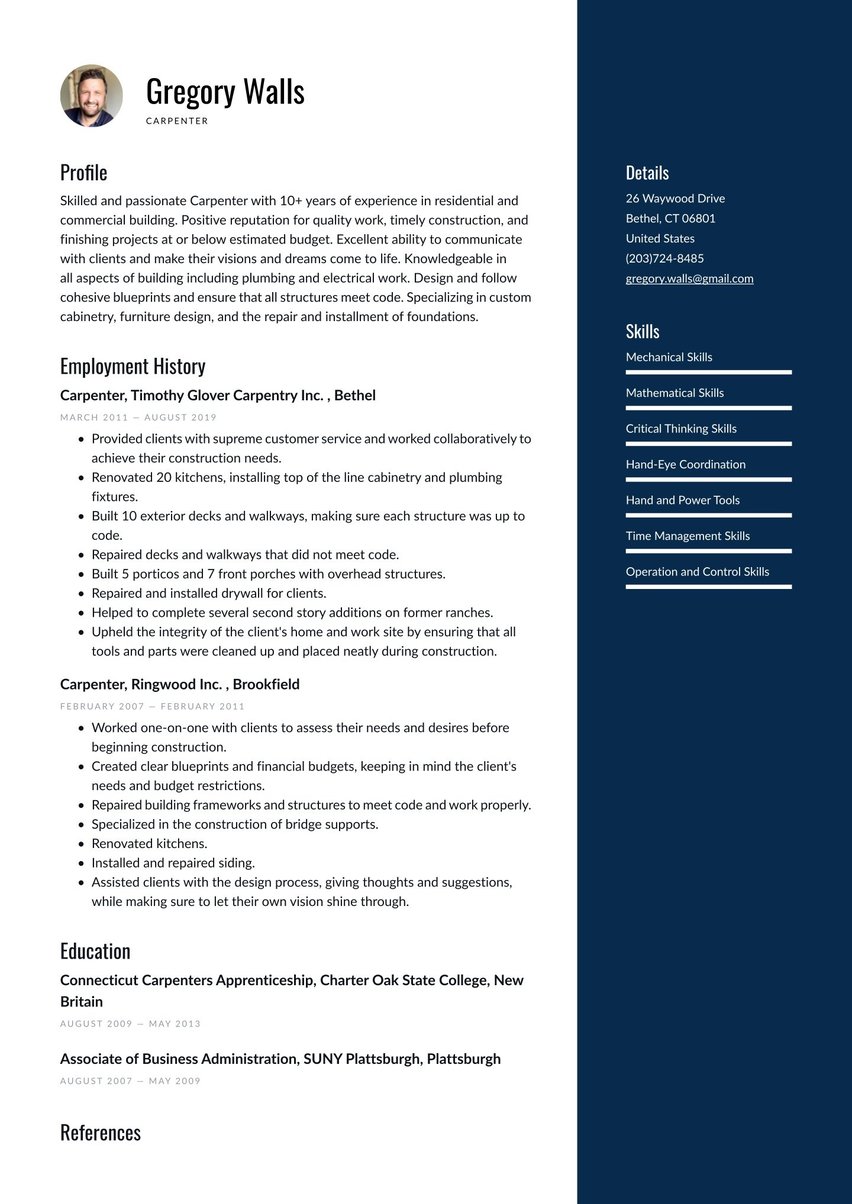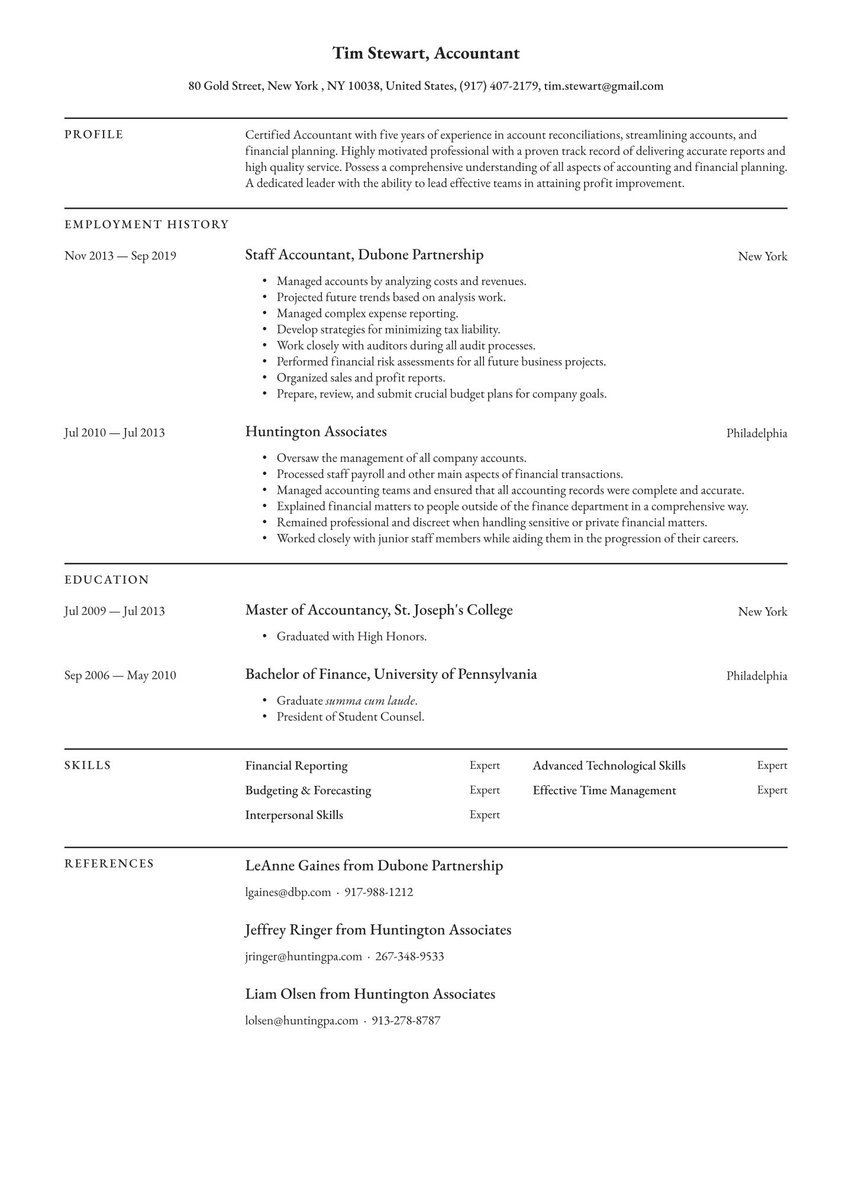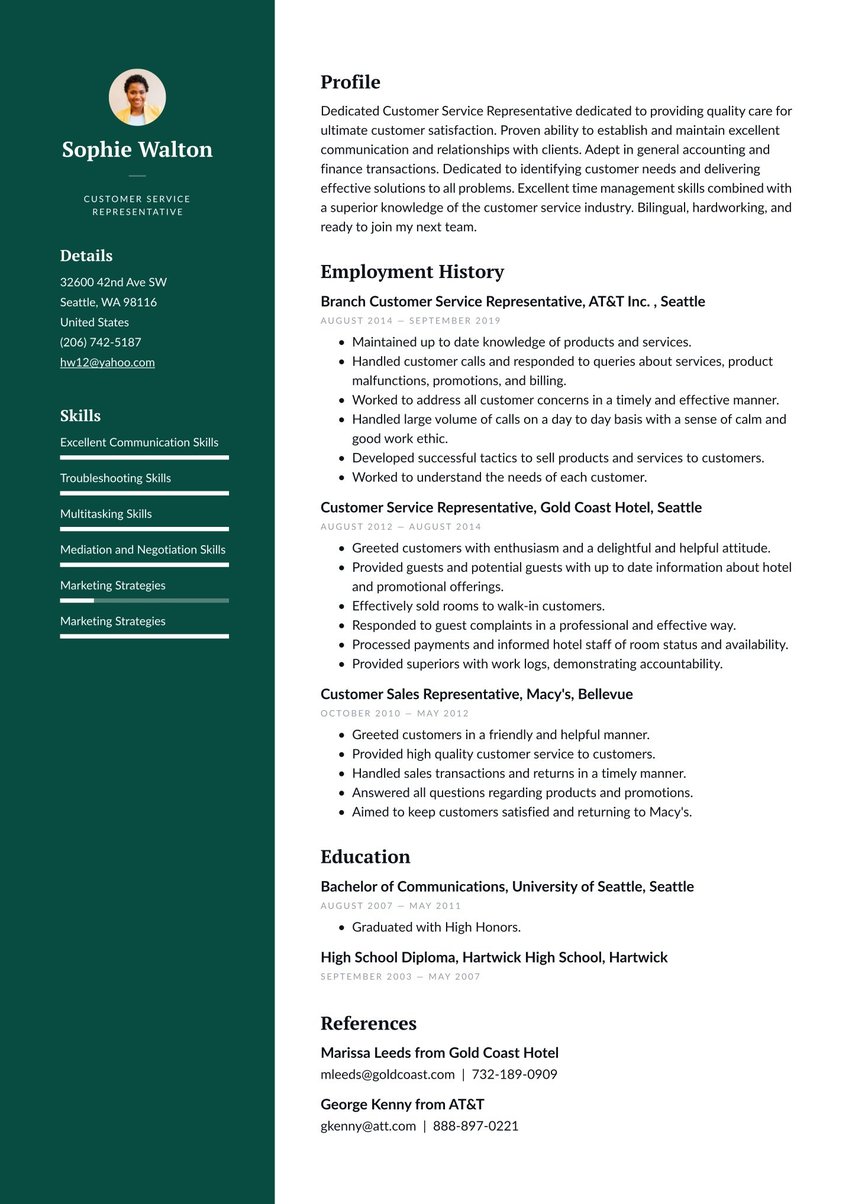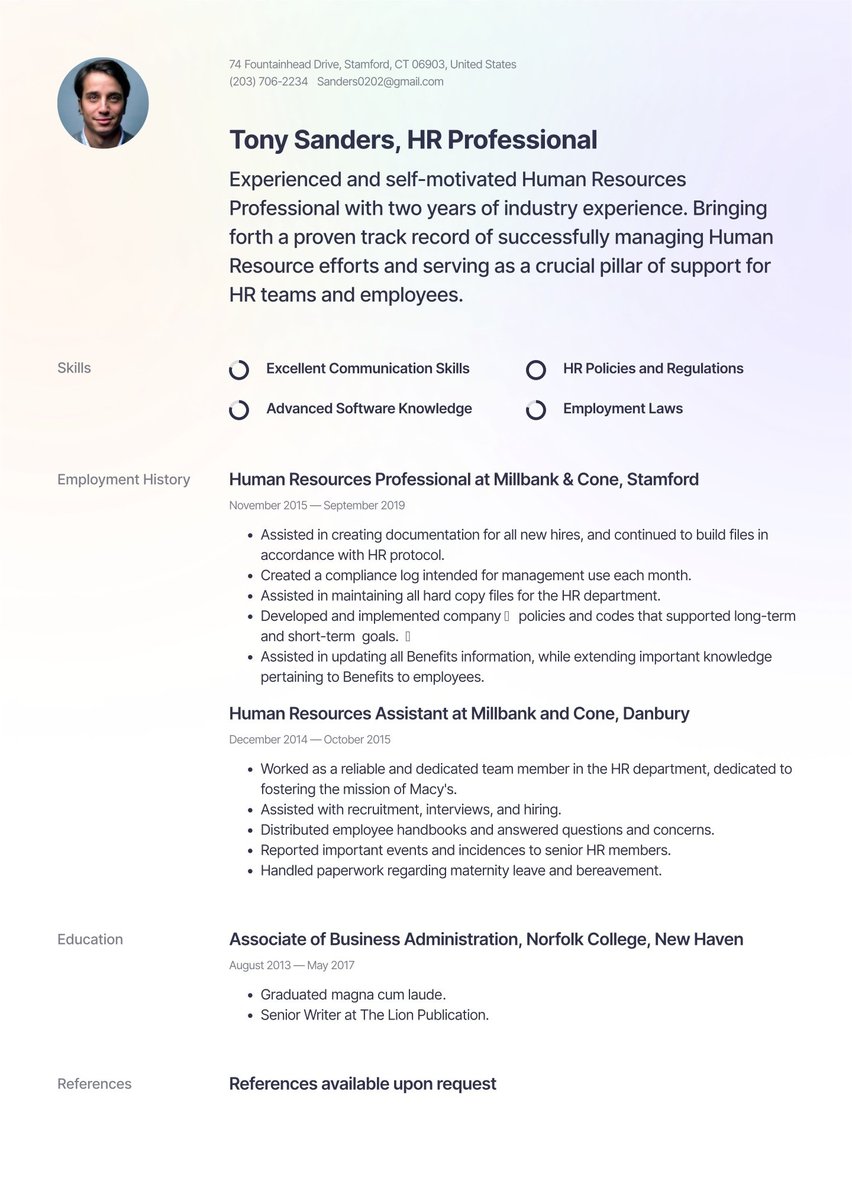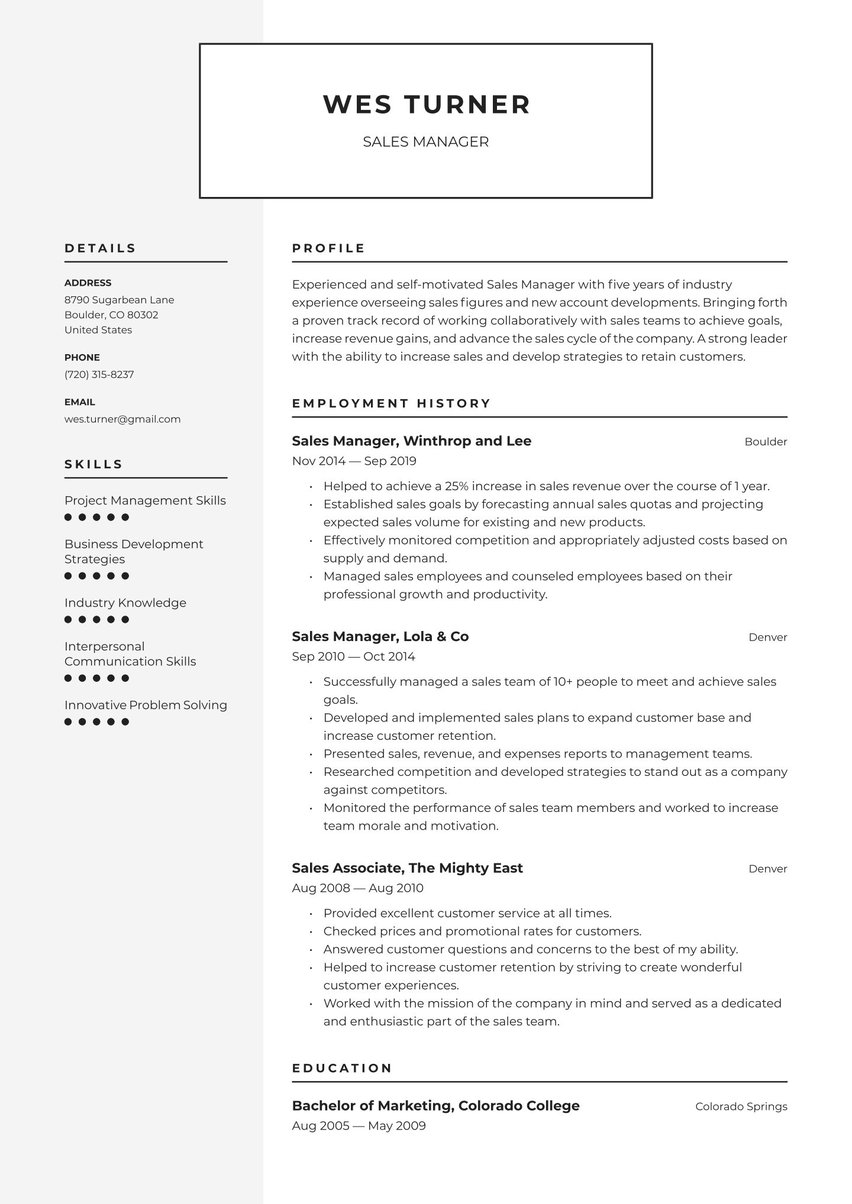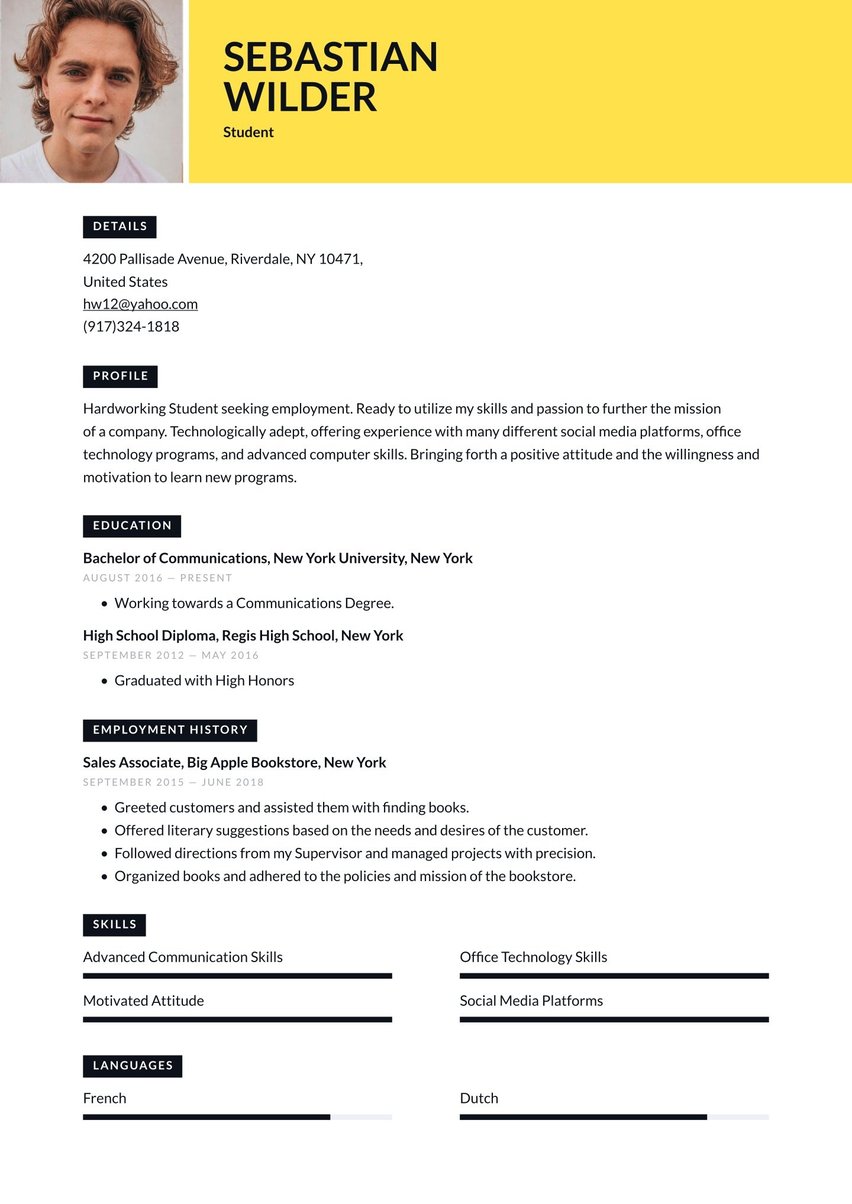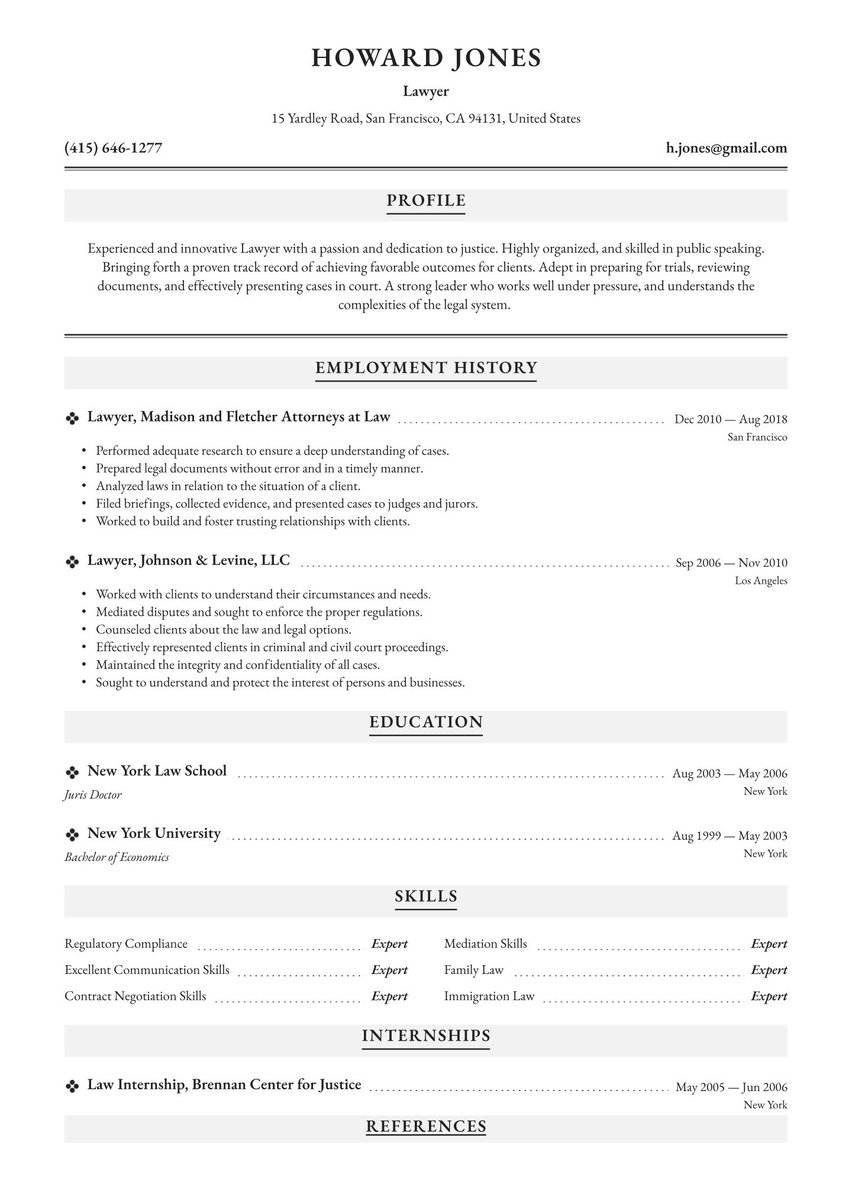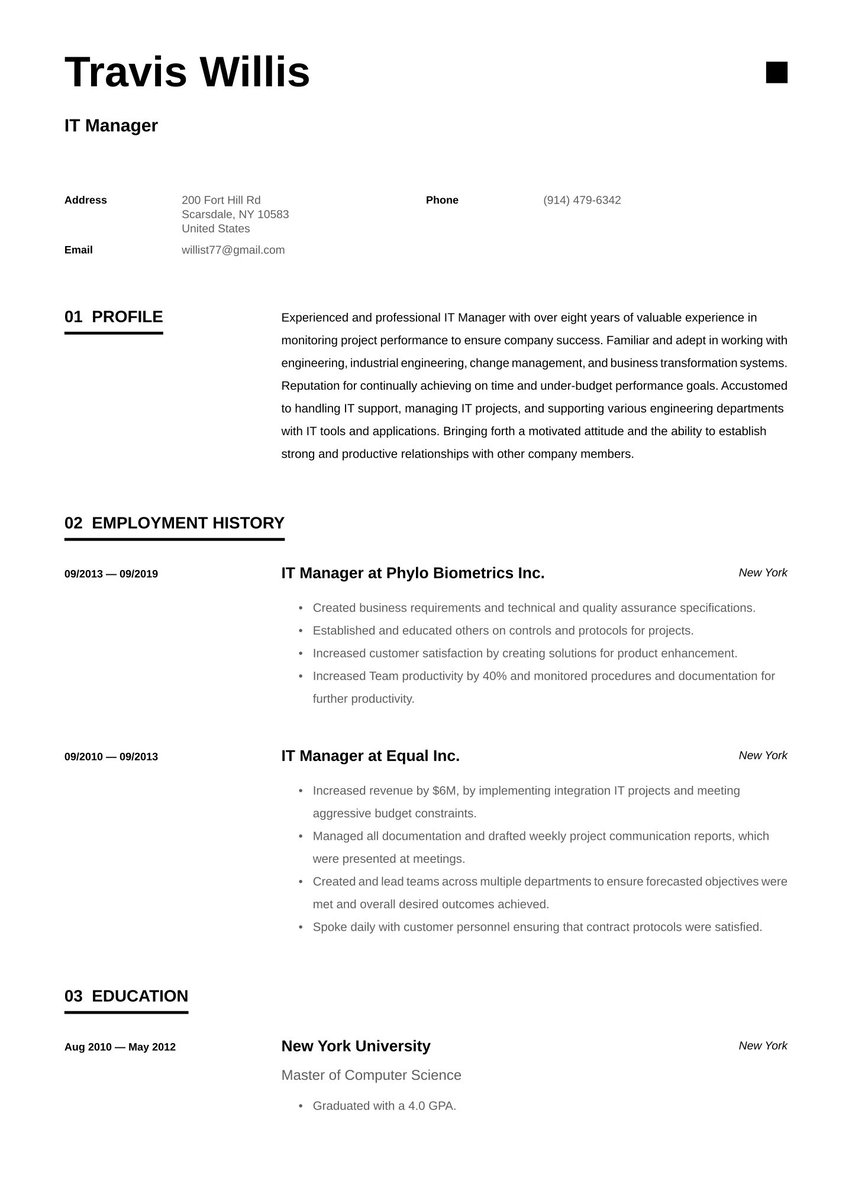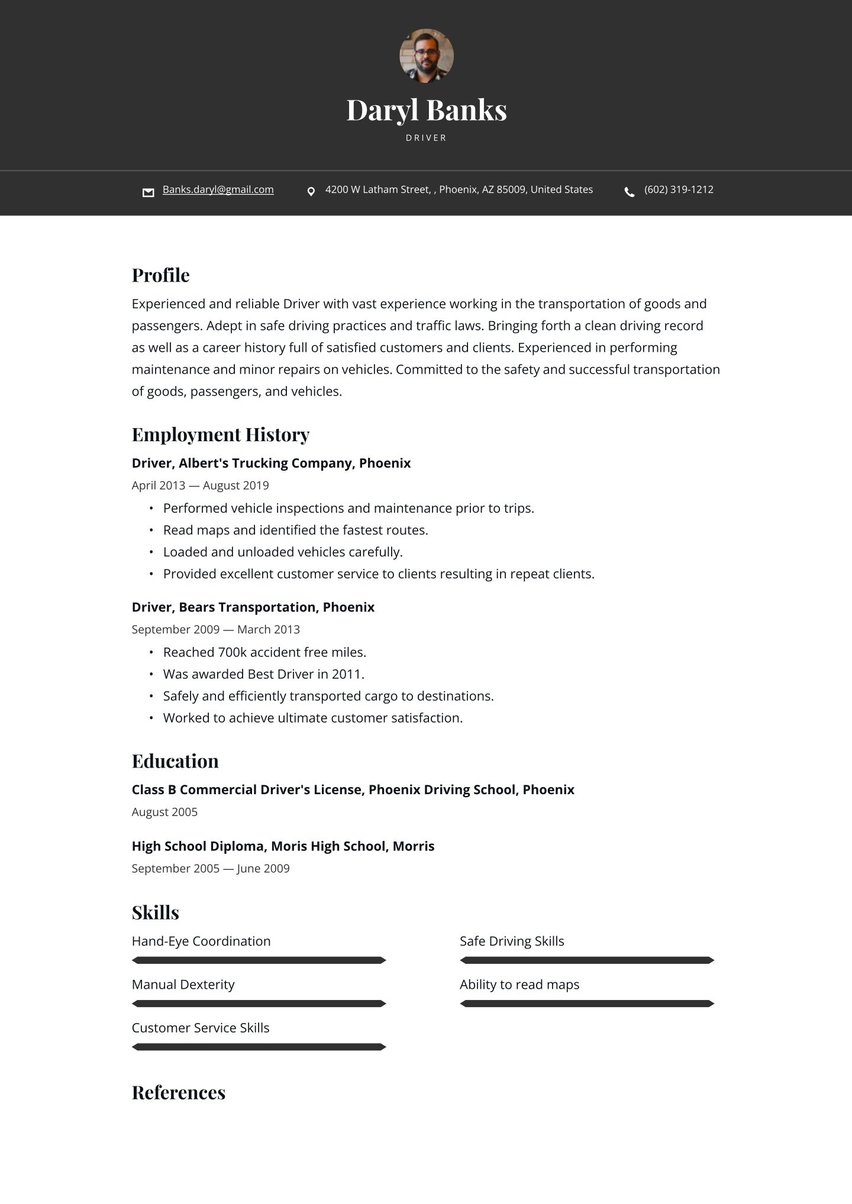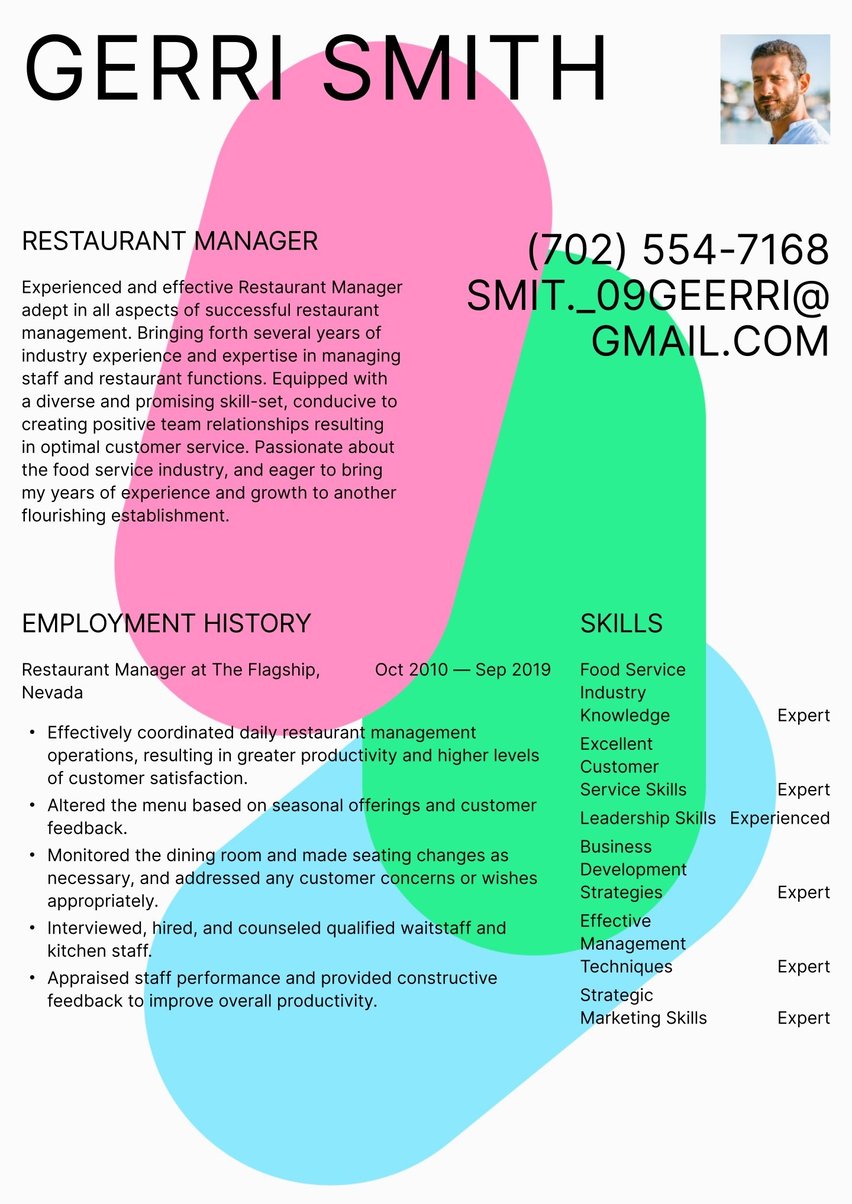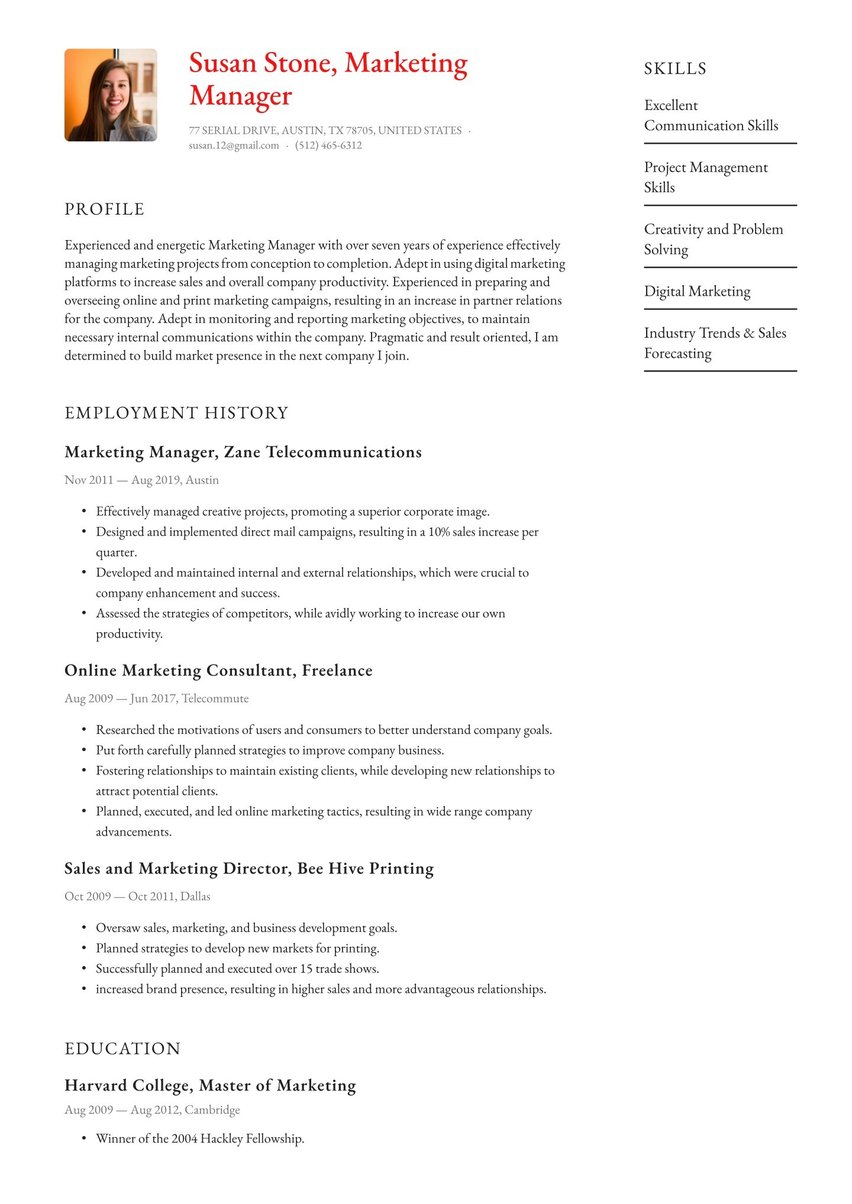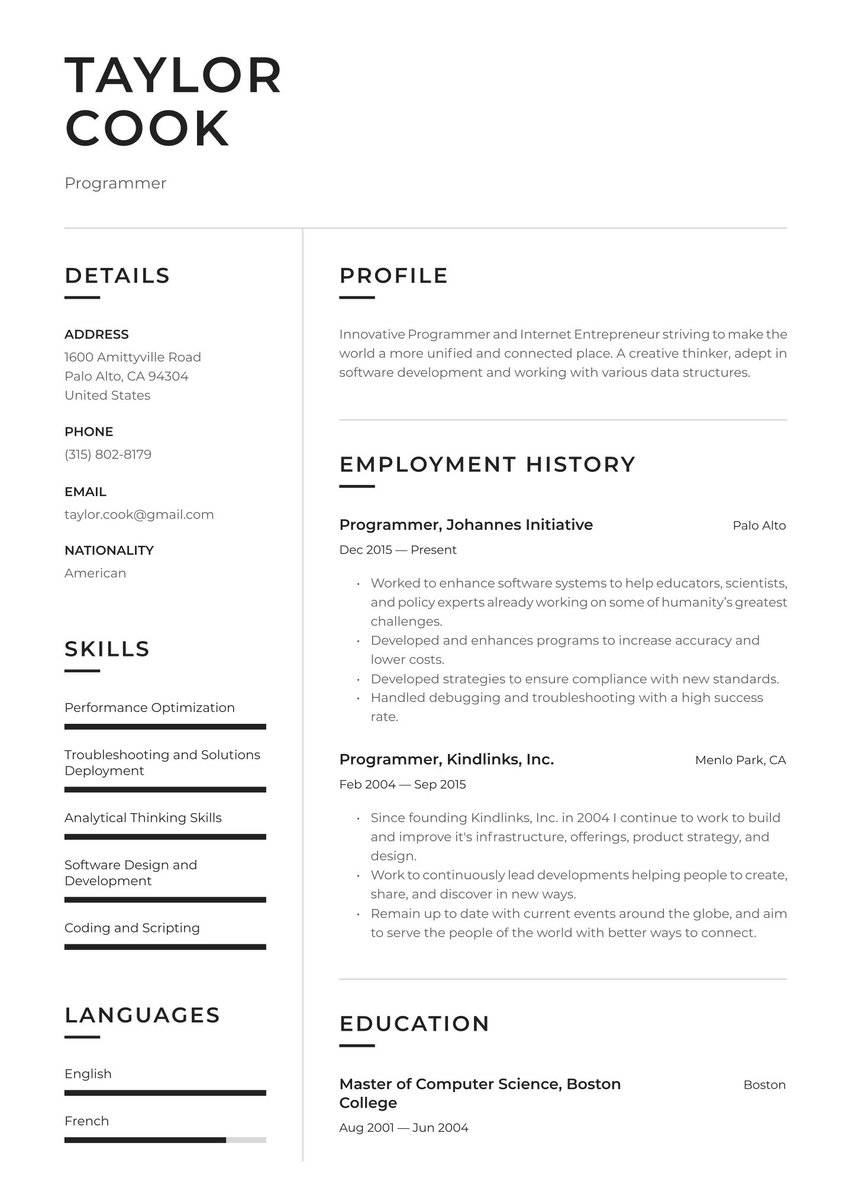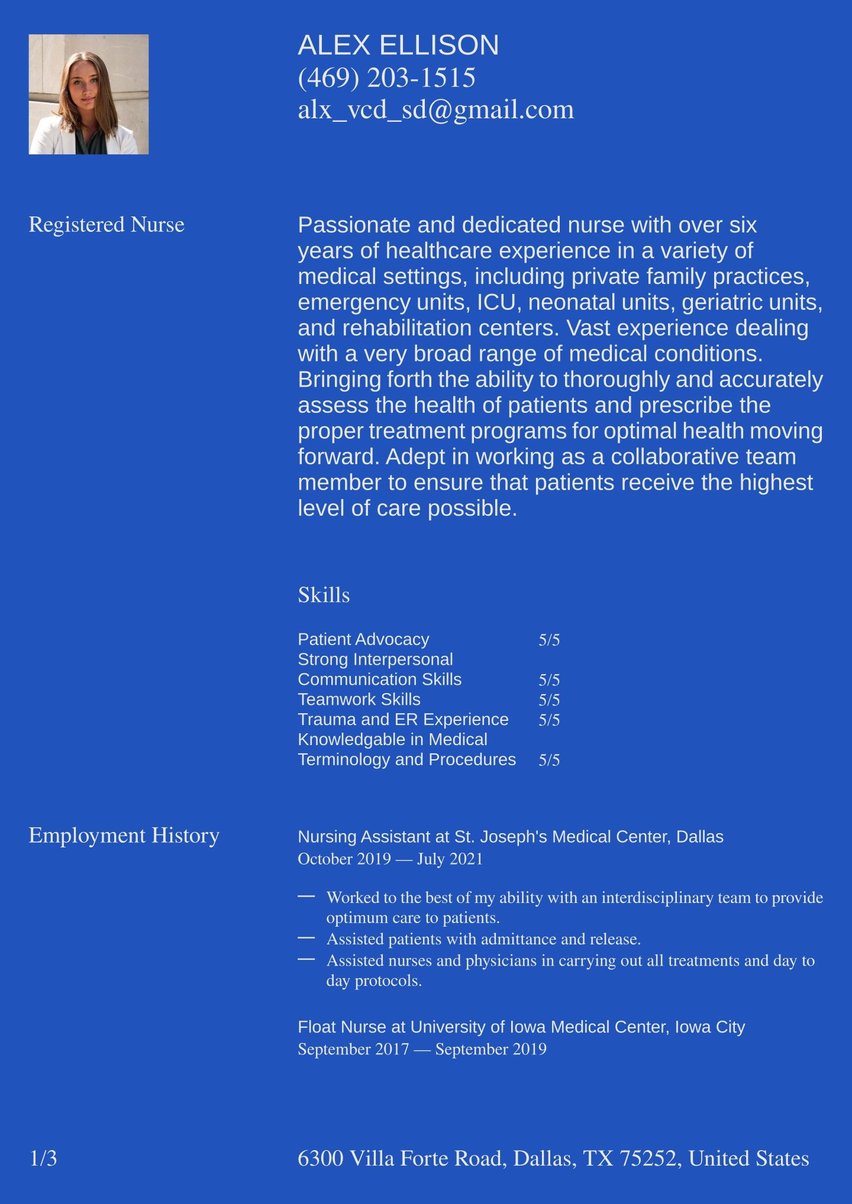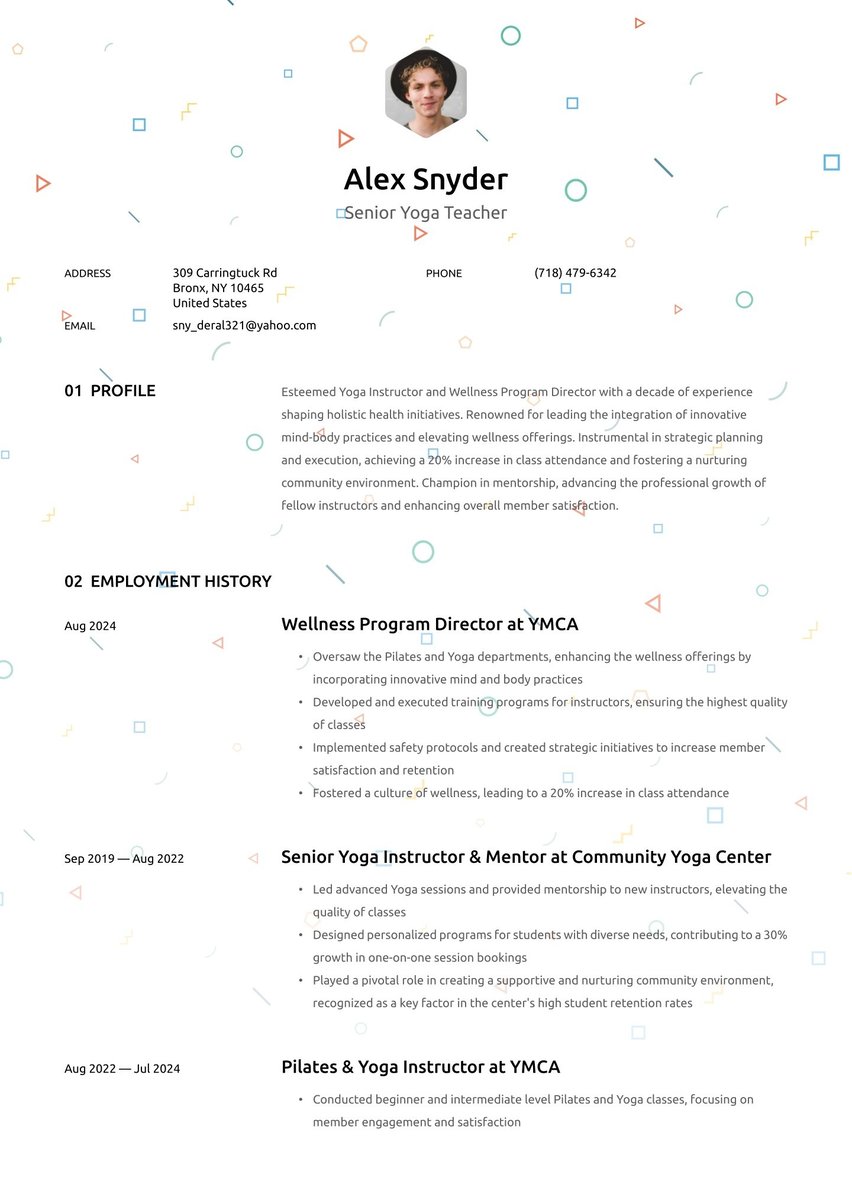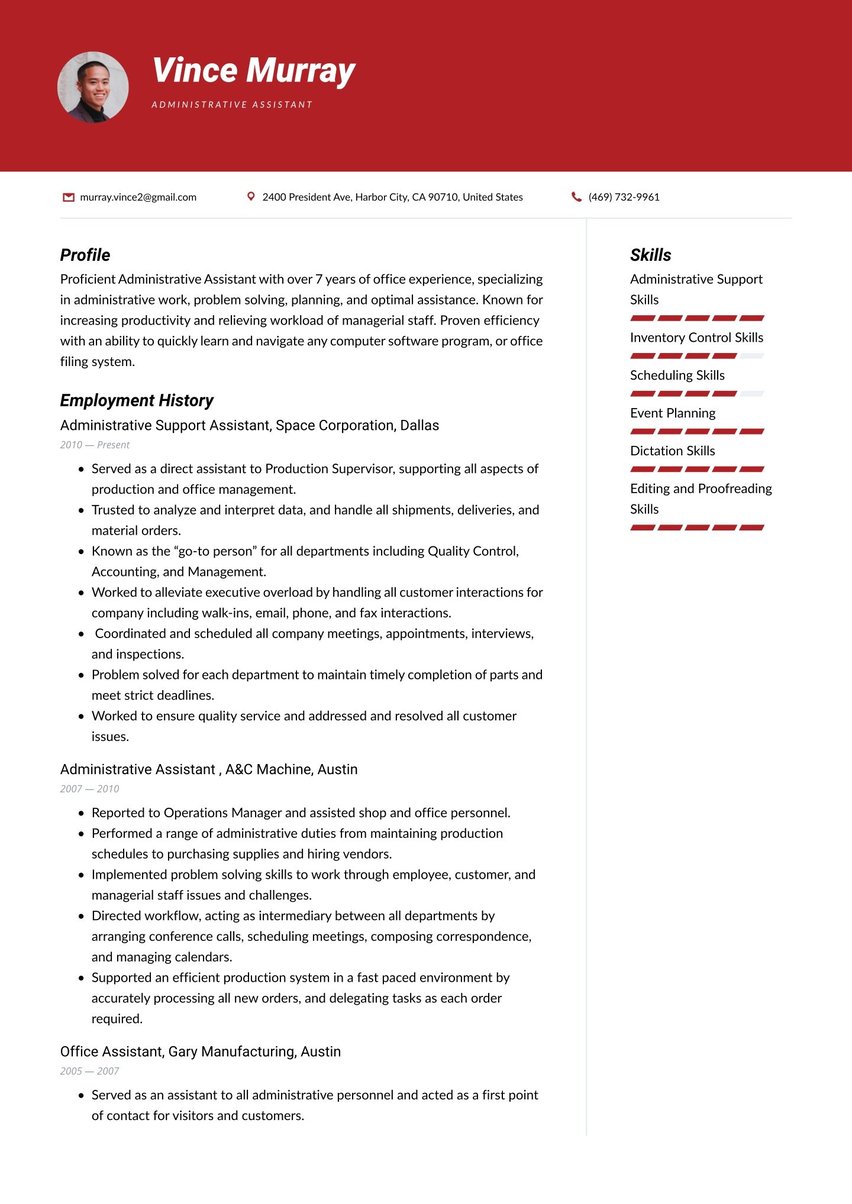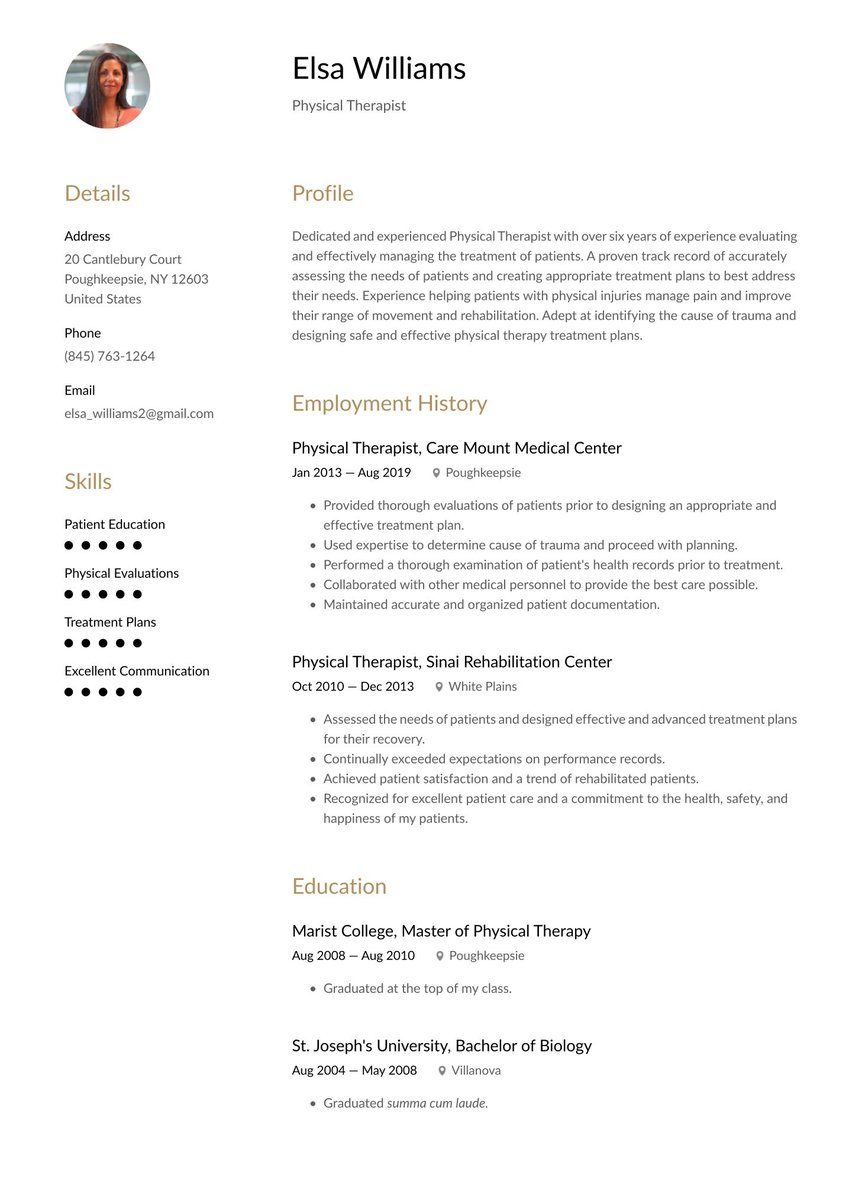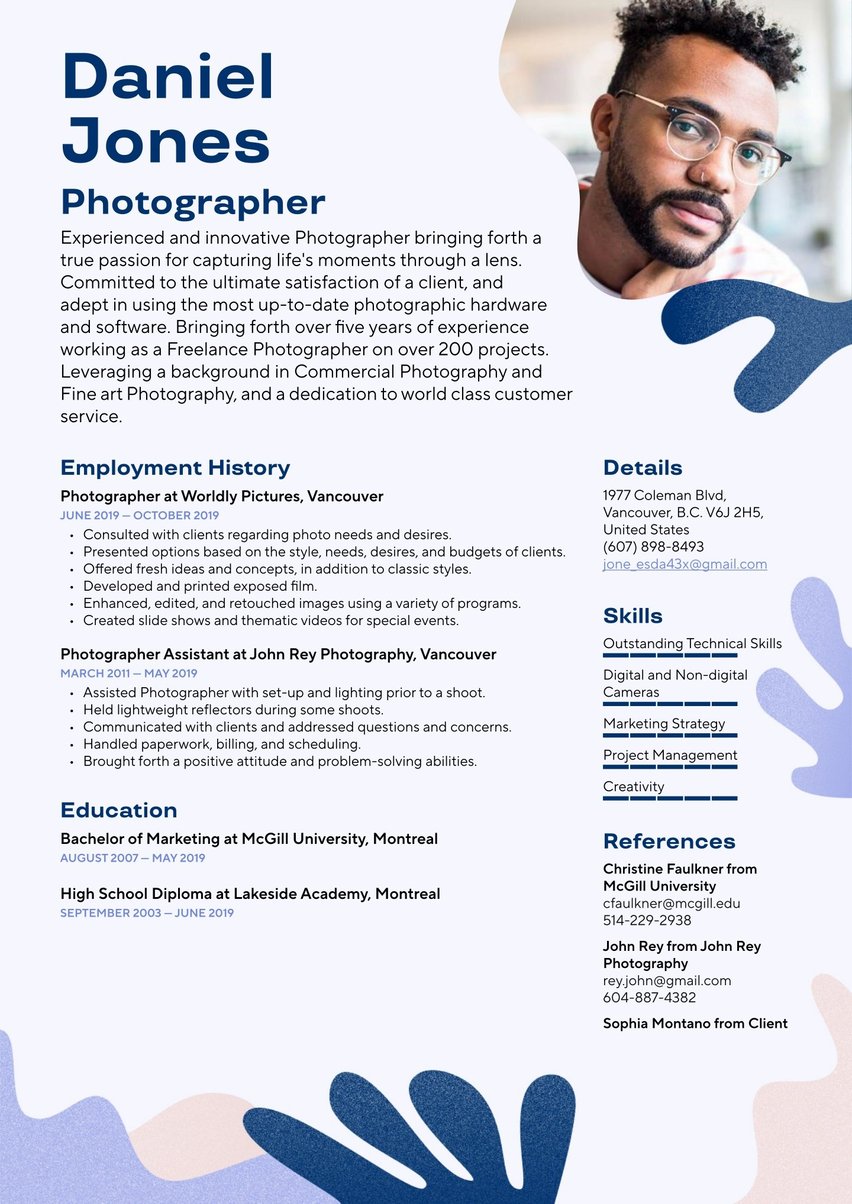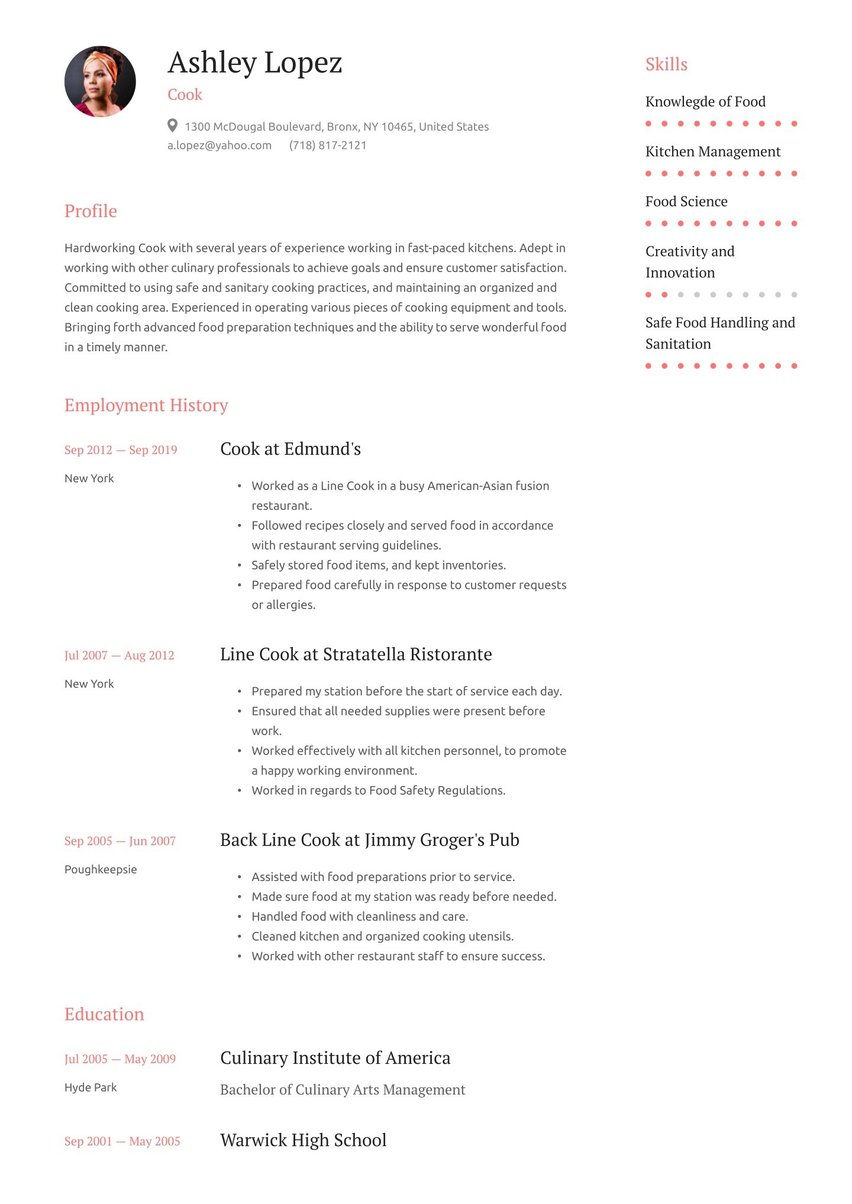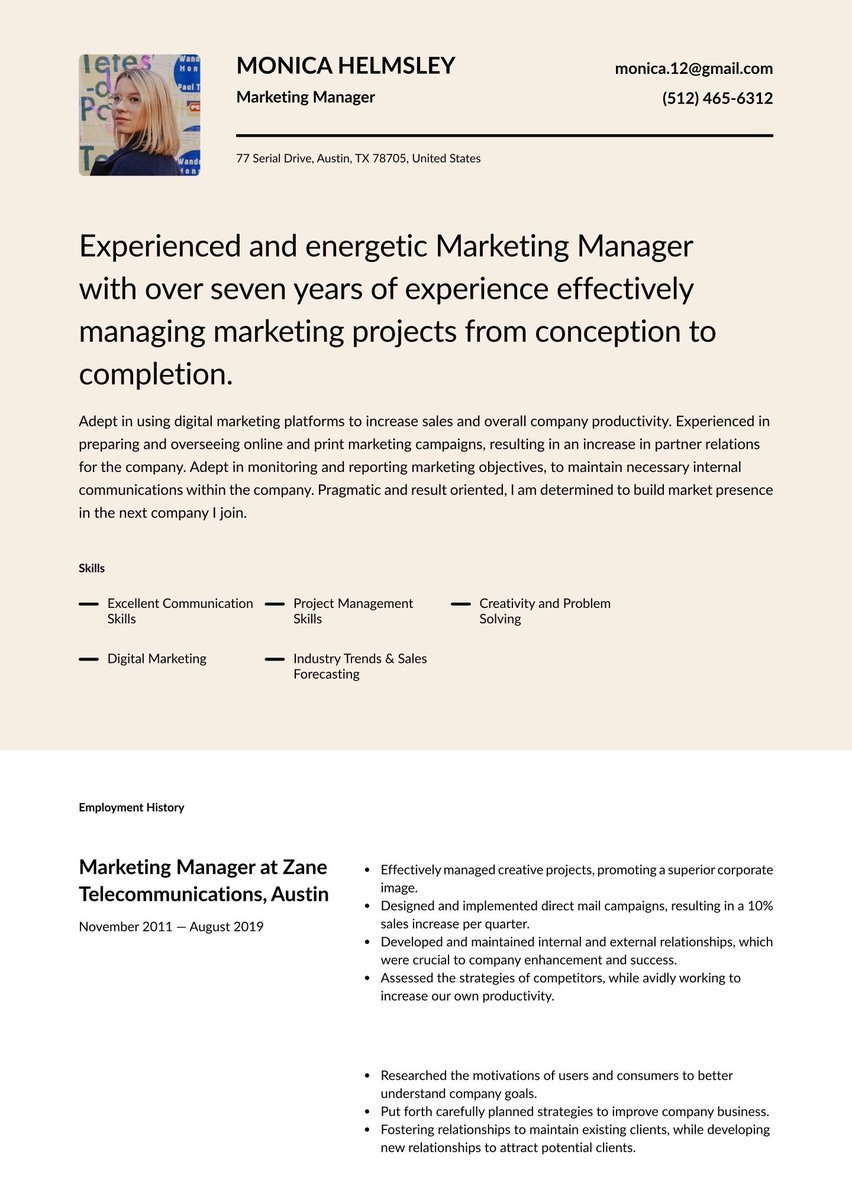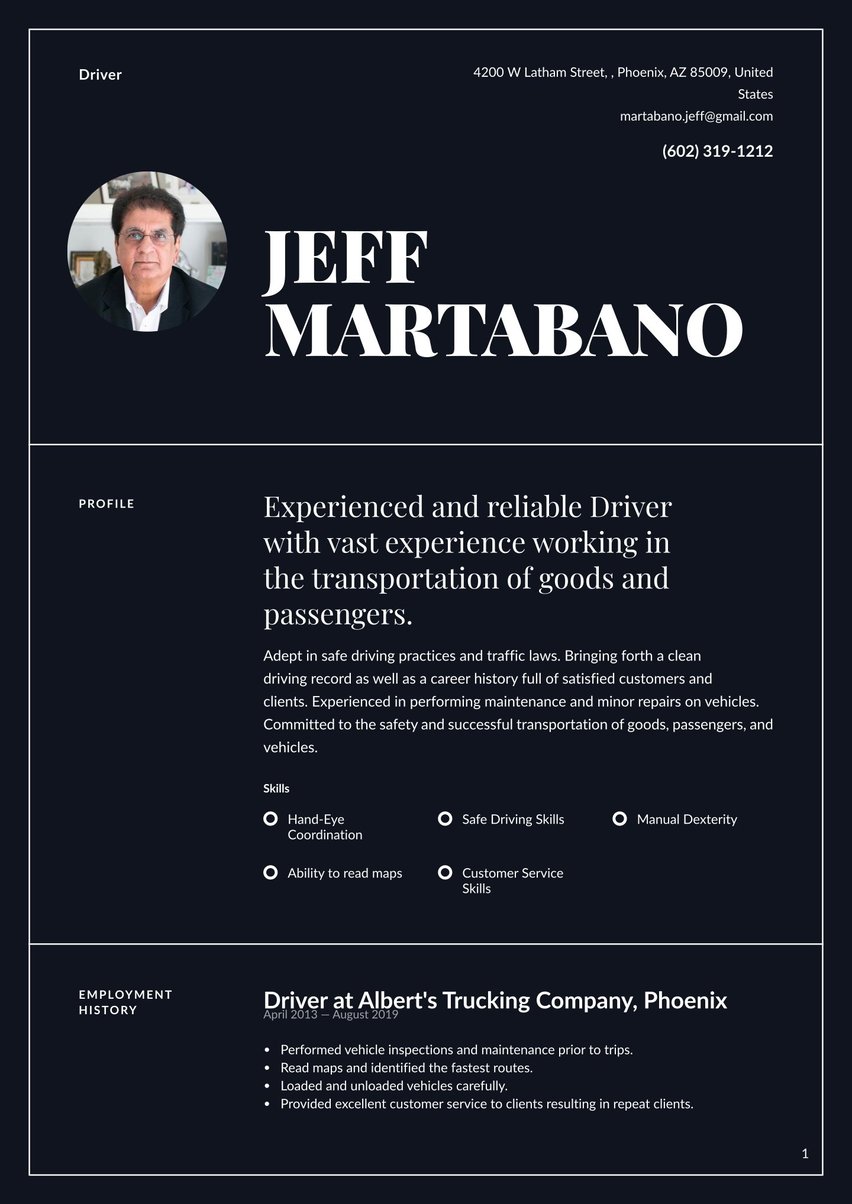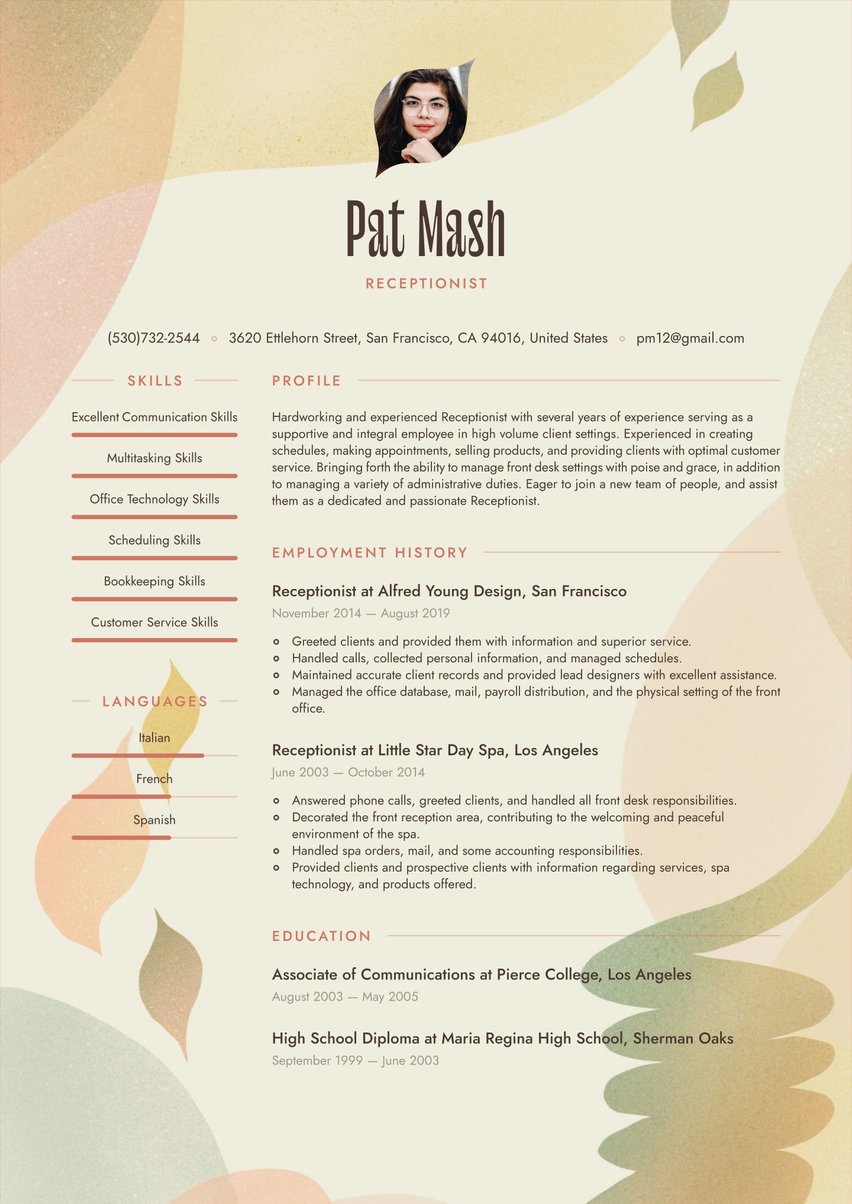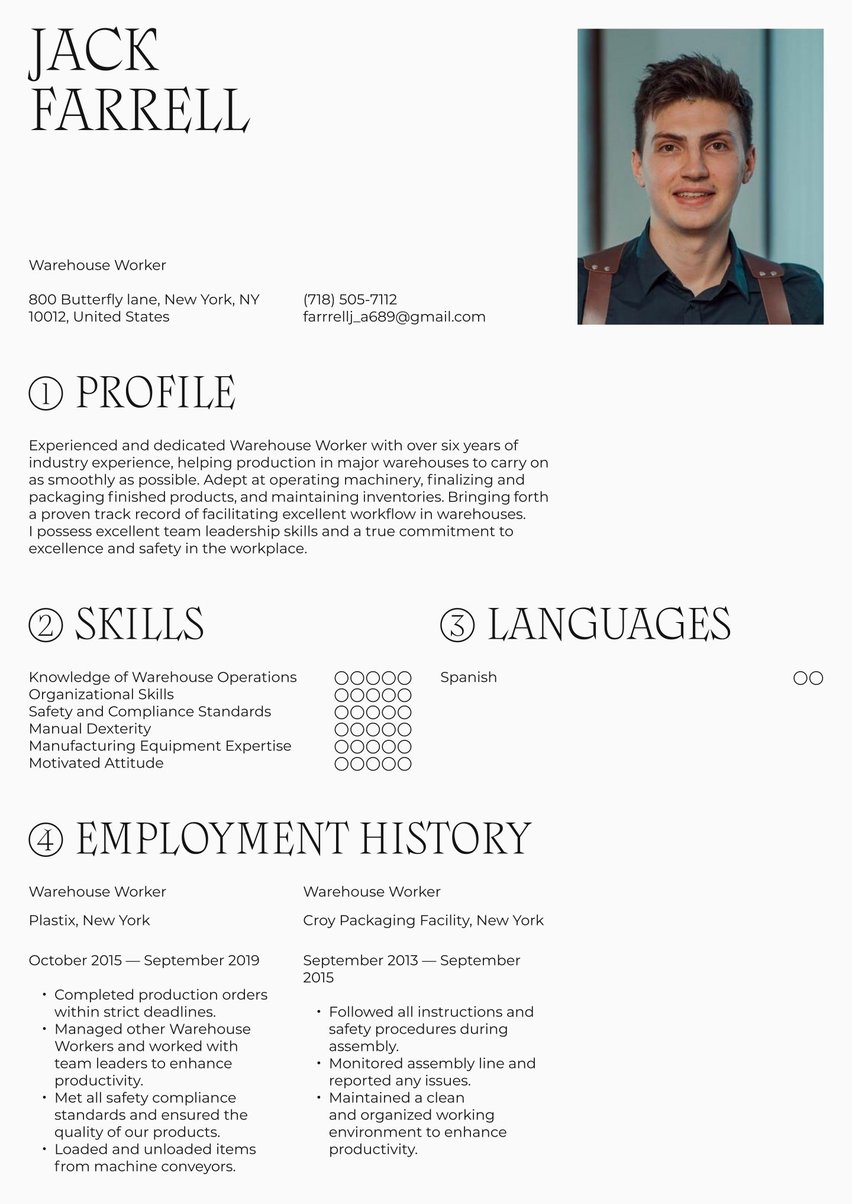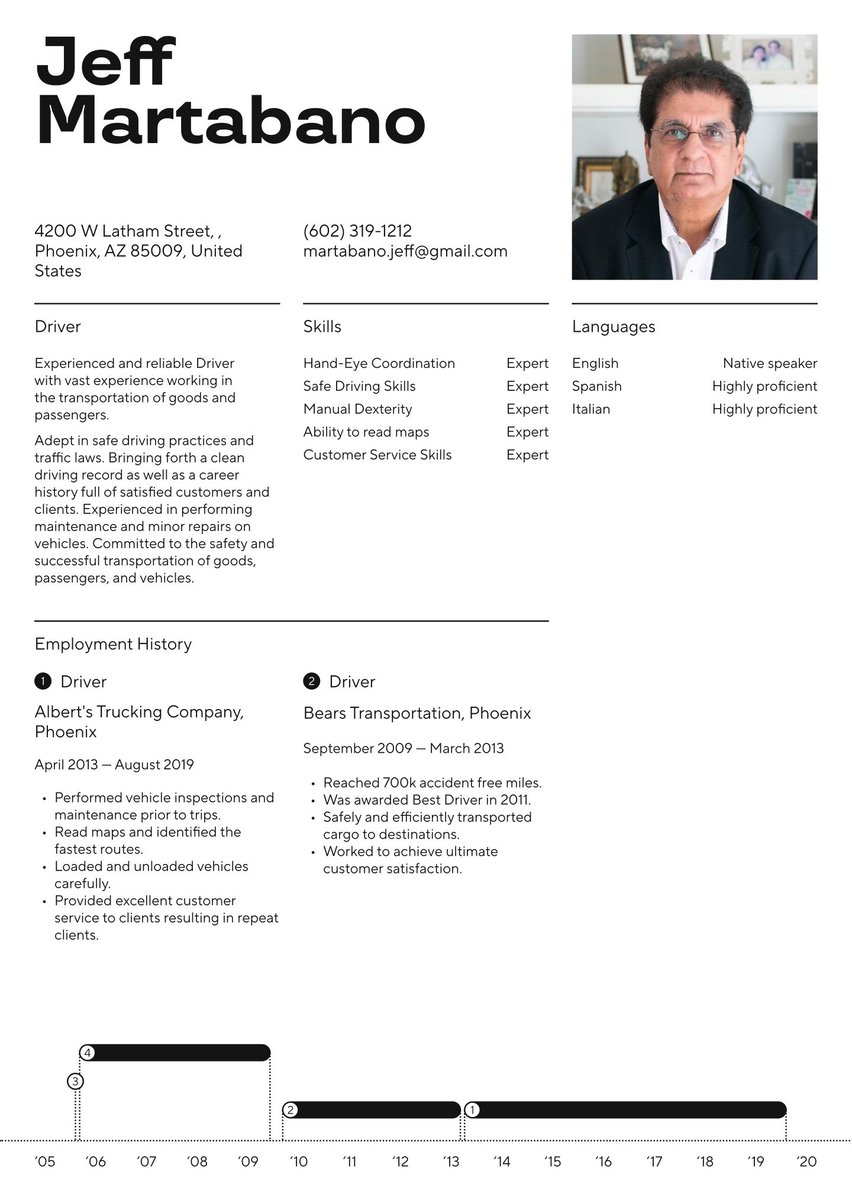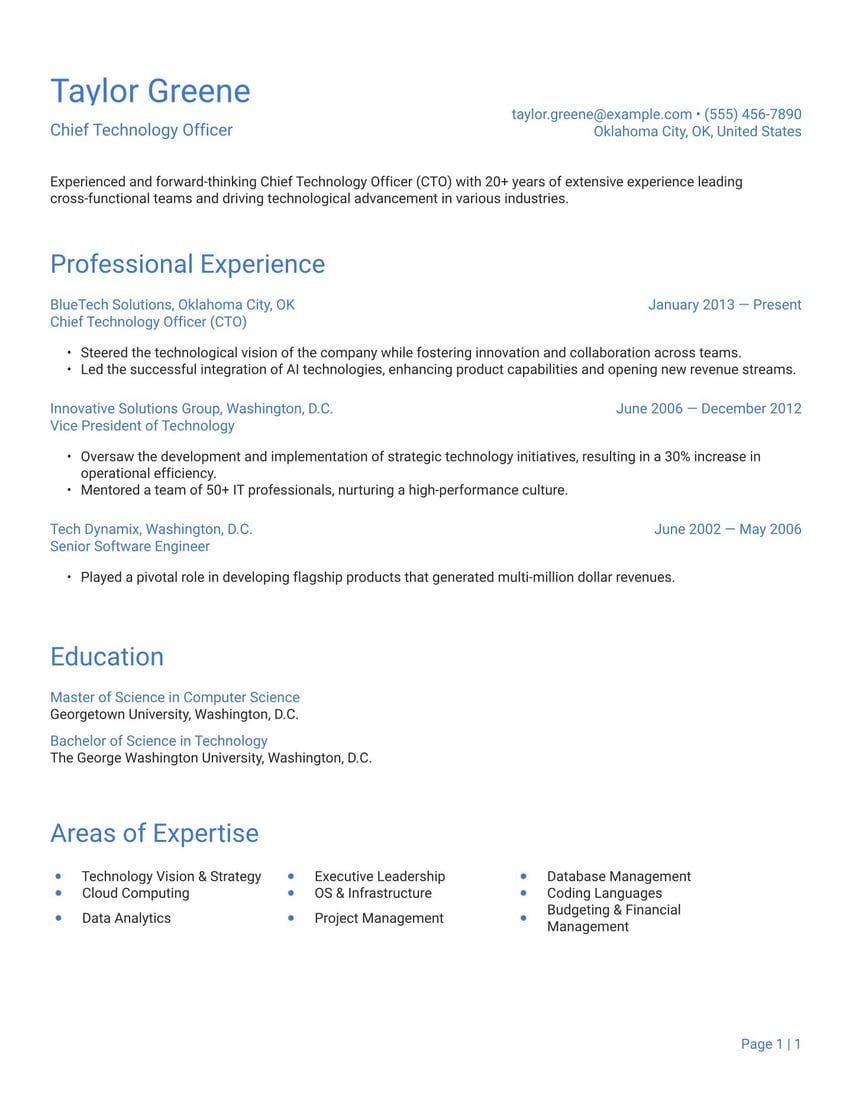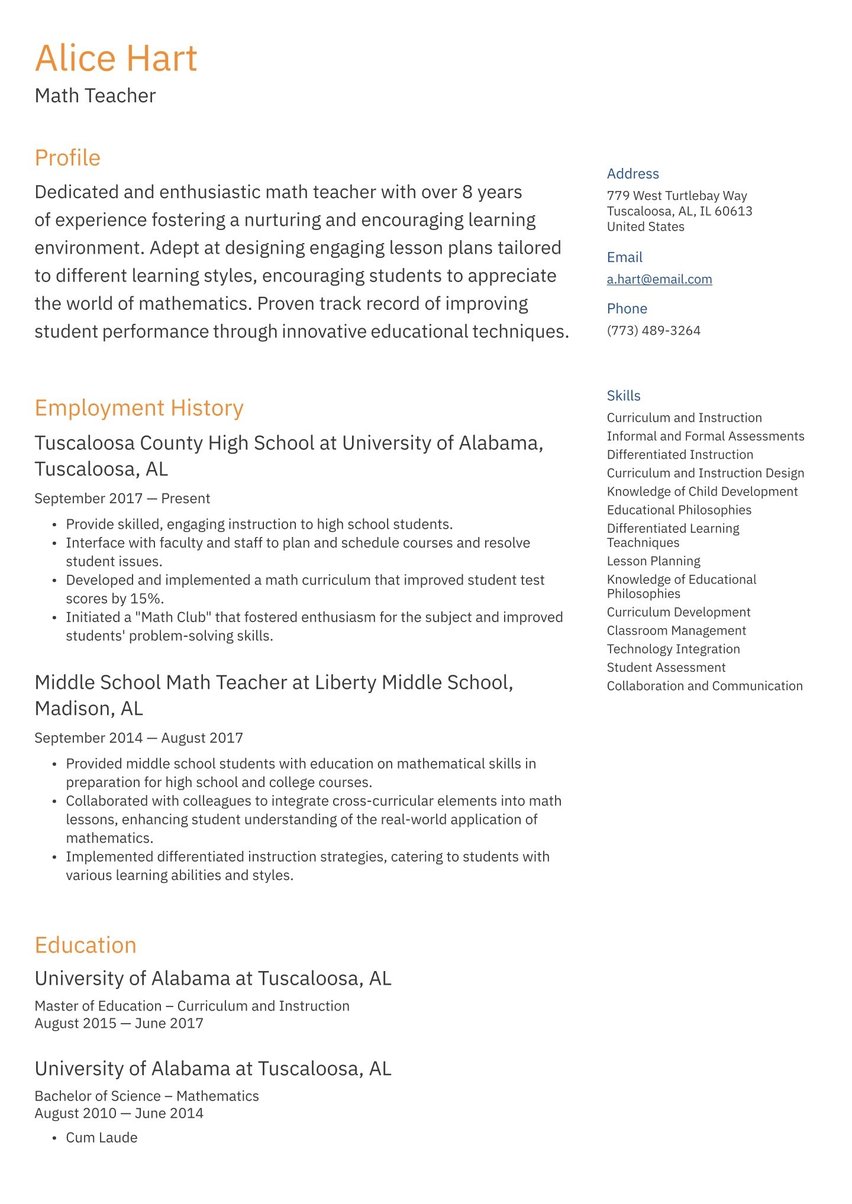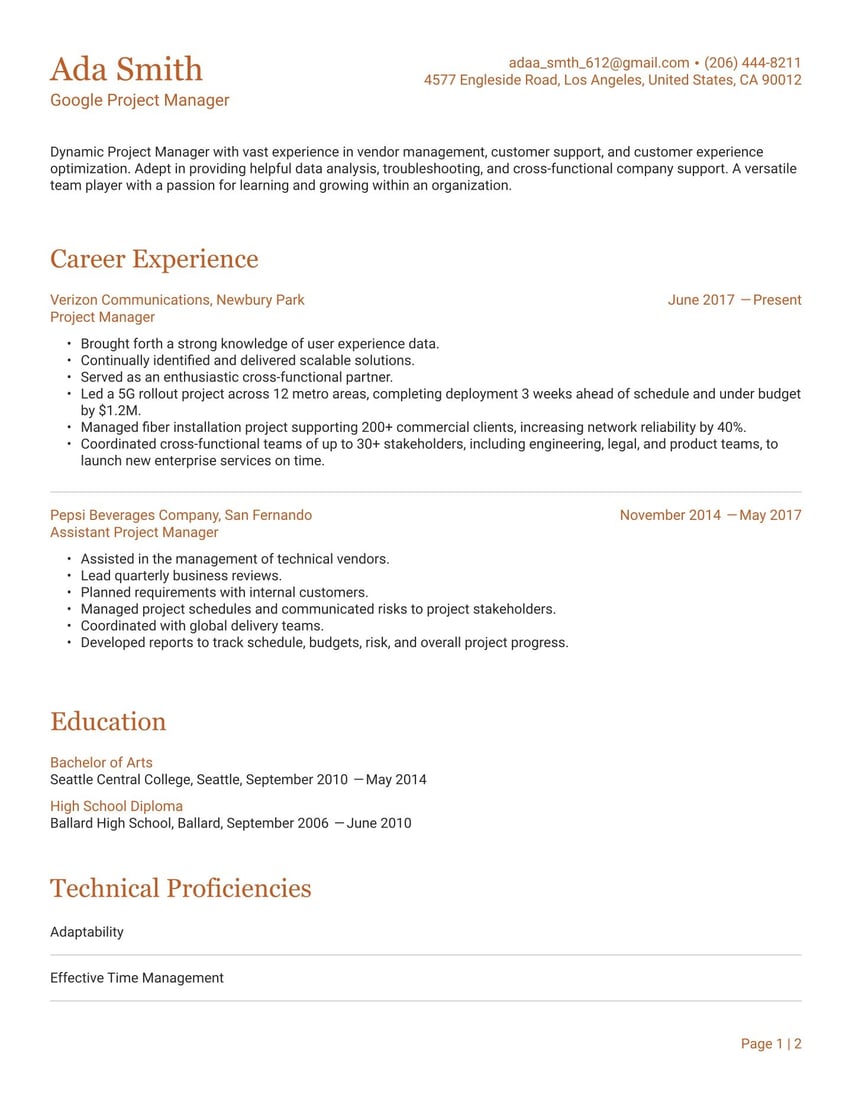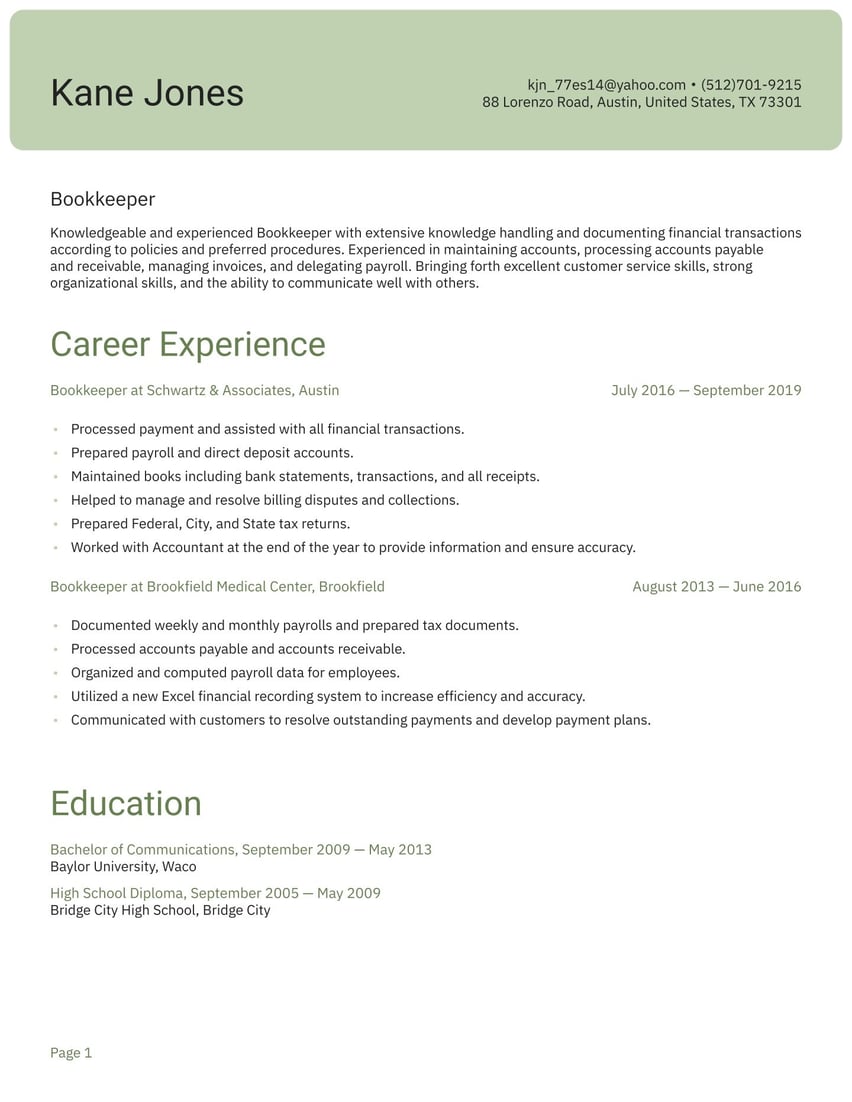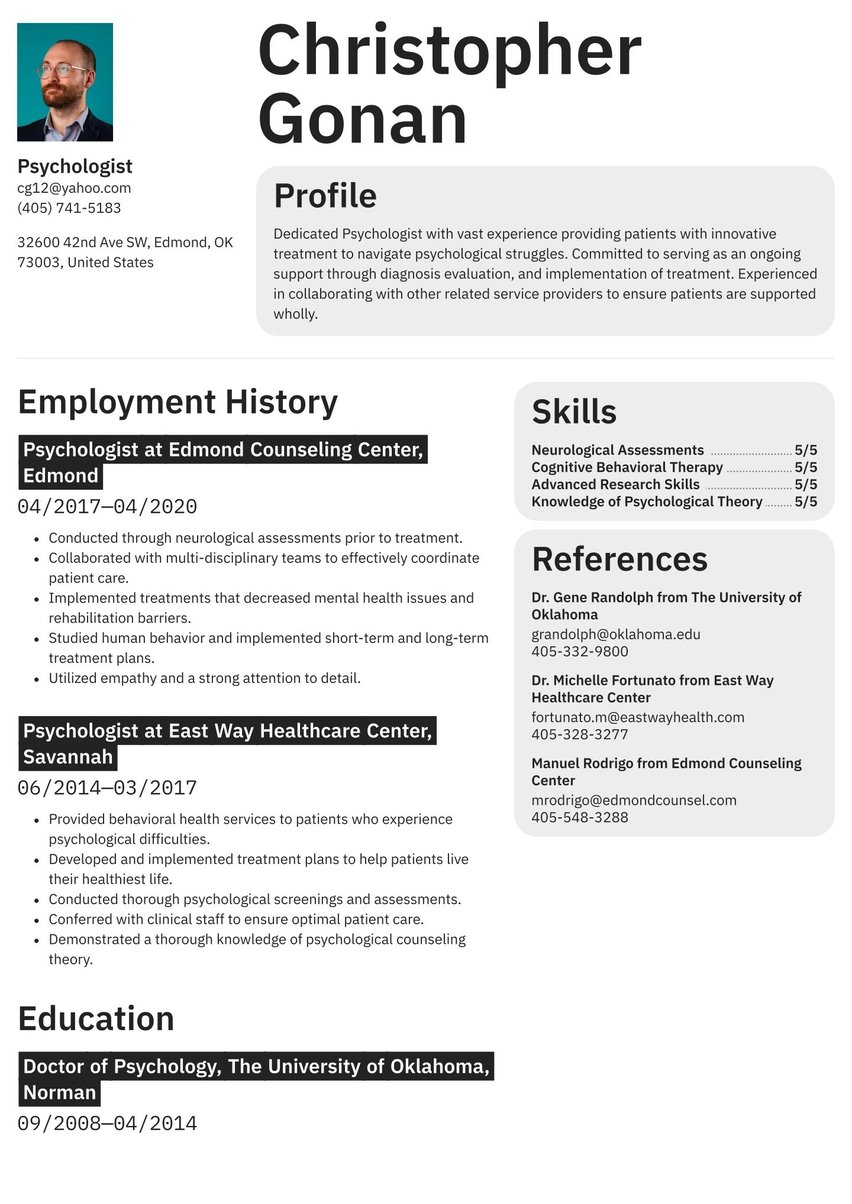Passionate and dedicated nurse with over six years of healthcare experience in a variety of medical settings, including private family practices, emergency units, ICU, neonatal units, geriatric units, and rehabilitation centers. Vast experience dealing with a very broad range of medical conditions. Bringing forth the ability to thoroughly and accurately assess the health of patients and prescribe the proper treatment programs for optimal health moving forward. Adept in working as a collaborative team member to ensure that patients receive the highest level of care possible.
10/2019 - 07/2021, Nursing Assistant, St. Joseph's Medical Center, Dallas
- Worked to the best of my ability with an interdisciplinary team to provide optimum care to patients.
- Assisted patients with admittance and release.
- Assisted nurses and physicians in carrying out all treatments and day to day protocols.
- Assisted an average of 12 patients per shift with daily living activities, maintaining a 100% satisfaction score in internal patient surveys.
- Reduced patient call light response times by 30% through proactive rounding.
09/2017 - 09/2019, Float Nurse, University of Iowa Medical Center, Iowa City
- Provided high level patient care during heavy patient load periods needing additional personnel.
- Assisted hospital staff and other RNs in day-to-day tasks in accordance with patient care plans and physician's orders.
- Assisted with duties in the ER, Rehab, and Med-Surg units.
- Assisted in stabilizing patient-to-nurse ratios during staffing shortages, improving coverage by 25% on high-demand days.
- Praised in peer reviews for adaptability and clinical competence across diverse departments.
08/2016 - 08/2017, Nurse Extern, Mayo Clinic of Austin, Austin
- Assisted with obtaining personal information of patients and prepared paperwork in a timely and efficient manner.
- Worked to maintain a neat and functional admitting department, conducive to high quality care.
- Provided quick assessments and helped to determine treatment needed for patients requiring critical care.
- Participated in care for 50+ patients over 8-week externship, assisting with vitals, hygiene, and documentation under supervision.
- Supported RN staff during 10+ code situations, improving response readiness and confidence in acute care environments.
01/2015 - 08/2018, Master of Nursing, Iowa State University, Iowa City
- Graduated with a 3.8 GPA.
08/2011 - 05/2015, Bachelor of Biology, University of Arizona, Phoenix
- Member of Student Nursing Association.
- Patient Advocacy
- Strong Interpersonal Communication Skills
- Teamwork Skills
- Trauma and ER Experience
- Knowledgable in Medical Terminology and Procedures
The job market for healthcare professionals has changed. Decades ago, it was seen as an exclusive field with limited "space under the sun." But today's unprecedented pressures on the healthcare workforce are creating new opportunities and challenges alike for members of the nursing profession. The need for an exceptional nurse resume, customized to your background and goals, has never been more critical.
There is no turning back from milestones like this one reached in 2018: healthcare positions in the U.S. surpassed manufacturing and retail, becoming the largest source of jobs in America.
Nurse resume examples by experience level
Simply put, nurses are in high demand. But this doesn't mean you should settle for the first nurse job listing you see, regardless of its quality. More than ever, it means you can aim for a dream job. And Resume.io is here to help.
We're here to provide our HR research-based guidance, our resume samples, and builder tool so you can get a nursing job opportunity that changes your life for the better. We hope it jumpstarts a career that is stable and fulfilling.
This nurse resume example and writing guide will cover:
- The role and job outlook for nurses
- How to write a nurse resume that shines through hundreds of applicants, first passing through the Applicant Tracking software filter
- Choosing the best format to structure your nurse resume
- How to showcase your most important skills
- Ways to impress by custom-tailoring the content and tone of your nurse resume
- Optimizing each section of your nurse resume
- Professional resume layout and design hints.
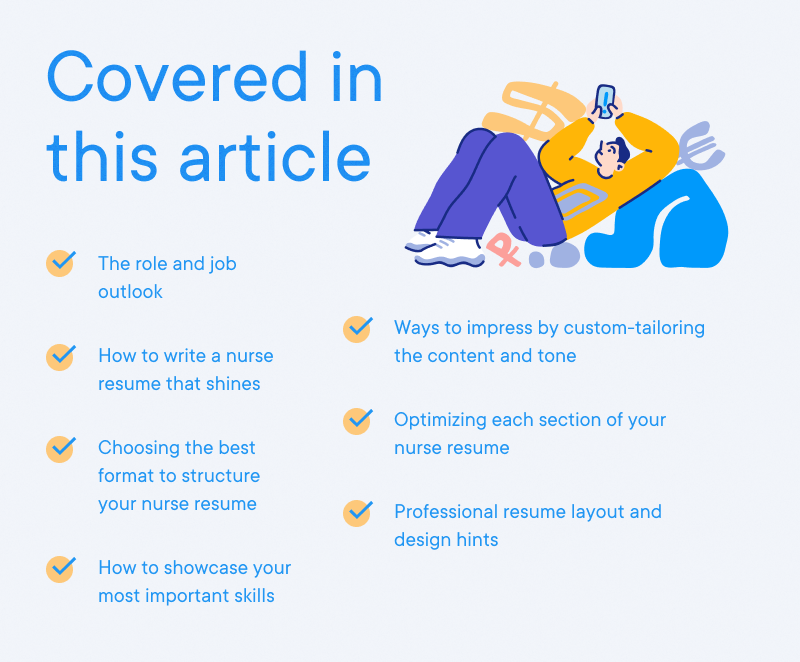
How to write a nurse resume
First, you need to know what sections comprise your nurse resume. Your resume should contain the following elements:
- The resume header
- The resume summary (aka profile or personal statement)
- The employment history section
- The resume skills section
- The education section
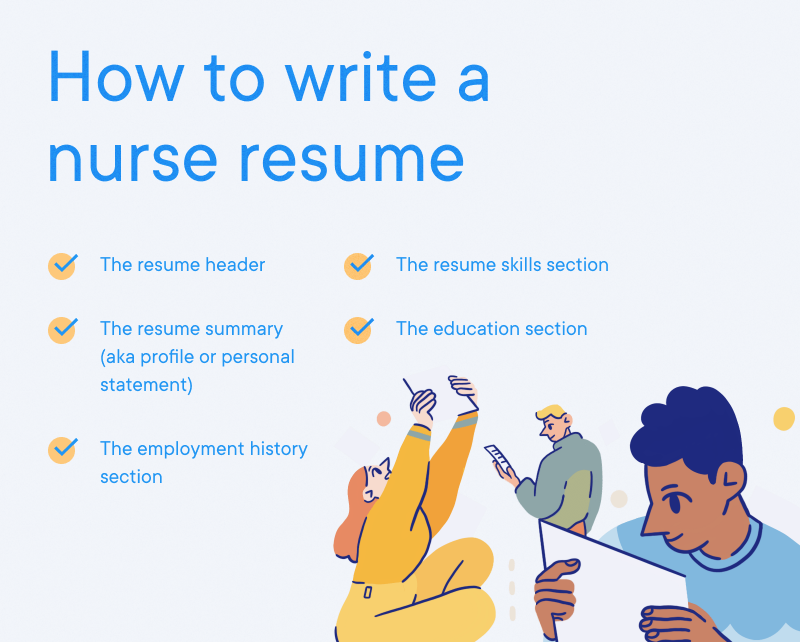
Next, you need to know the technology you are up against.
The job market has become so saturated with candidates that instead of hiring more recruiters, employers rely on electronic screening solutions. Hospital Applicant Tracking System (ATS) software analyzes your nurse resume for keywords and ranks it against other resumes on the same basis. Only the highest-ranking nurse resumes will get passed on to a human recruiter.
Keyword matches are the most basic aspect of ATS. In specific sections of this nurse resume example and guide, we'll offer tips for choosing the correct keywords so your resume doesn't get filtered out by an ATS.
Be open to alternative interview and resume-submission methods. Video interviews, automated chats and other recruitment tools are used more and more in healthcare. Understanding them rather than avoiding them will give you a competitive edge.
Need more inspiration? View our other related resumes from the same medical industry
- Healthcare resume sample
- CNA resume sample
- Lactation Consultant resume sample
- Epidemiologist resume sample
- Health Care Administration resume sample
- Dental Receptionist resume sample
- Endodontist resume sample
- Nursing Home resume sample
- Audiologist resume sample
- Respiratory Therapist resume sample
- Physician Assistant resume sample
- Clinic Coordinator resume sample
- Medical Receptionist resume sample
- Optometrist resume sample
- Physical Therapist resume sample
- Pharmacist resume sample
- Sonographer resume sample
- Psychotherapist resume sample
- Medical Science Liaison resume sample
- Dental Assistant resume sample
- Paramedic resume sample
- Doctor resume sample
Choosing the best resume format for nurses
In most instances, the most suitable format for structuring a nurse resume will be reverse chronological. This generally works well for job seekers in any occupation whose work history follows a linear path in a series of employee positions. In that resume section, progressive job experience and accomplishments are organized by employer/workplace in reverse order from most recent to earliest dates.
An alternative resume format may be appropriate for nurses who are new to the workforce or changing careers. Those with a more varied occupational background or especially impressive education might also look at the alternative functional resume format. It‘s also an option for some self-employed professionals with an assignment or contract-based background.

Nurse resume summary example: Professionalism and empathy
The summary of your nurse resume should highlight your strongest professional qualifications. But nursing is also one of the most people-focused jobs in the world, so be sure to give your resume summary a touch of warmth and emotion.
There are two equally important factors in writing an effective nurse resume summary. The first relates to perception: the resume summary is your first personal introduction to a human reader, not an automated filter. This is where you present yourself as a caring and warm nurse, not one who comes across as cold and detached.
The second factor comes back to the ATS algorithm for scoring your resume based on keywords. Not every hospital will use scoring filters, but it's better to be on the safe side and not risk having your resume be overlooked on purely technical grounds.
So, how do you know which keywords and professional details are the most important ones? Analyze the nurse job description with care. You'll often find certain qualities, ideas, or technical requirements mentioned more than once, sometimes with different phrasing. This should be your signal that the employer values them more than others.
A recent study from TalentNeutron shows that the second most requested keyword for nurses is "bilingual." In the U.S., the most requested second language is Spanish.
If you speak a second language, even imperfectly, make sure to include this in your summary and/or skills section. If either is too cluttered, put it in the one that has more space.
Last, but definitely not least, is the human element of your resume summary. Nurses are the heart and soul of many hospitals. Many health facilities rely on nurses to not only perform medical duties but also support patients emotionally and create a warm, caring environment. So, that's exactly the image to project on your nursing resume, alongside your impressive formal qualifications.
Strive for language that’s energetic and positive, using action verbs that describe your professional outlook and history.
A passionate and dedicated nurse with over six years of healthcare experience in a variety of medical settings, including private family practices, emergency units, ICU, neonatal units, geriatric units, and rehabilitation centers. Vast experience dealing with a very broad range of medical conditions. Bringing forth the ability to thoroughly and accurately assess the health of patients and prescribe the proper treatment programs for optimal health moving forward. Adept in working as a collaborative team member to ensure that patients receive the highest level of care possible.
Employment history sample: Diverse experience
Nurses comprise one of the most diverse professions in terms of background and age. While past nursing positions always take priority in the employment history section of your nurse resume, you can also highlight your varied life and job experience.
There's plenty of good news to go around for anyone seeking to work as a nurse. For starters, top hospitals are happy to hire certified nurses even if they're not graduates in their 20s. In fact, nursing applicants 40 years and older who are transitioning from other careers and have rich life experience are becoming more common.
Medical-administrative terms may vary from country to country, and even from state to state in the U.S. So look carefully at the job listing vocabulary, or even visit the employer's website, to make sure your resume wording is matches.
Also, remember there are differences between healthcare facilities in different locations. Include helpful details in your nurse resume about your previous workplaces to clarify. Here are some examples:
- Facility type: rehabilitation hospital, acute care, long-term care, teaching hospital, etc. If applicable, specify trauma center level (1 to 5).
- Type of hospital unit (ICU, MS, ER, and so on) and any specifics such as dealing with patient overflows.
- Bed count (both facility and unit) and other indications of the scope of your responsibilities.
Refer to initiatives you were responsible for, milestones, team efforts, and measurable results. For example, did you help develop new policies or procedures? Did you receive favorable patient review scores?
Newly graduated nurses with little or no work experience should include their clinical rotations. Relevant past employment in other professions also belongs here.
Nursing Assistant, St. Joseph's Medical Center, Dallas
October 2019 - July 2021
- Worked to the best of my ability with an interdisciplinary team to provide optimum care to patients.
- Assisted patients with admittance and release.
- Assisted nurses and physicians in carrying out all treatments and day-to-day protocols.
Float Nurse, University of Iowa Medical Center, Iowa City
September 2017 - September 2019
- Provided high level patient care during heavy patient load periods needing additional personnel.
- Assisted hospital staff and other RNs in day-to-day tasks in accordance with patient care plans and physician's orders.
- Assisted with duties in the ER, Rehab, and Med-Surg units.
- Provided a level of care in accordance with the medical center's stellar reputation.
Nurse Extern, Mayo Clinic of Austin, Austin
August 2016 - August 2017
- Assisted with obtaining personal information of patients and prepared paperwork in a timely and efficient manner.
- Worked to maintain a neat and functional admitting department, conducive to high-quality care.
- Provided quick assessments and helped to determine the treatment needed for patients requiring critical care.
Nurse resume education example
Some occupations don't put too much emphasis on formal credentials but the medical and other healthcare professions absolutely do. Not only is high-caliber training a vital requirement for nurses, but it could have a bearing on your resume. If you're applying for a nurse job in the U.S., the education section has a HIGHER-than-usual priority in your nurse resume.
The American Nurses Credentialing Center (ANCC) has developed recommendations regarding the order of your formal credentials and where they are placed in relation to other sections.
- If you're an experienced nursing professional, the education section can go either above or below your employment history. This can be at your discretion, or according to local standards or employer preference.
- If you're a new nursing graduate with no work experience, place your education section first, right below the summary.
Are you using the resume.io builder to create your nurse resume? It's easy to list your licenses or similar credentials in the "school" field of the education section. Just as you would normally identify the college or other learning institutions, indicate the jurisdiction/organization that issued your nursing licenses or designations.
Where does the information go, and in what order? The ANCC recommends the following priority for listing credentials in nurse resumes:
- Highest earned degree — in your education section.
- Licensure — in your summary and/or education section. For a considerable number of licenses, you can create a custom "Licenses" section below the section you use.
- State designations or requirements (such as APRN, NP, etc.) — once again, in your summary and/or education section.
- National certifications — in your education section or create a separate section for these.
- Awards and honors (from schools, professional organizations, past jobs, etc.) — placement as above.
- Other certifications (optional, ONLY if space allows) — in your education section or create a custom section.
Our resume builder tool really simplifies this whole process. You can rearrange sections up and down, easily fill in sample fields as you choose or create custom "Licenses" and "Certifications" sections.
Master of Nursing, Iowa State University, Iowa City
January 2015 - August 2018
- Graduated with a 3.8 GPA.
Bachelor of Biology, University of Arizona, Phoenix
August 2011 - May 2015
- Member of Student Nursing Association.
Skills section example: Necessary and valued
Nurses work at the intersection of practical knowledge, technology, and softer human interaction. The nurse job is about versatility, and so is your skills section. It's important to show equal love to both your hard and soft skills categories.
Hard skills enable your day-to-day productivity as a nurse, and your ability to solve most clinical and administrative problems. Specifically, they will vary depending on your past nurse education and experience.
Pay close attention to the nurse skills listed in the job description and descriptive wording. Using the same terminology not only ensures you pass the ATS but also shows the recruiter that you're an attentive, detail-oriented nurse.
Remember we mentioned an additional language as being the second-most requested nurse skill? Well, TalentNeutron studies reveal the MOST commonly requested are computer skills — especially electronic medical/hospital records software. Common program packages are Meditech and Epic software.
In the U.S., knowing your way around billing codes (ICD10 and ICD9) is also a common advantage.
Soft skills are the more abstract, people-oriented attributes you have as a nurse. They reflect your ability to interact positively with patients, understand the people around you, feel subtle emotional shifts or just generally be a kind, warm individual.
- Patient advocacy
- Strong interpersonal communication skills
- Teamwork skills
- Trauma and ER experience
- Knowledgeable in medical terminology and procedures
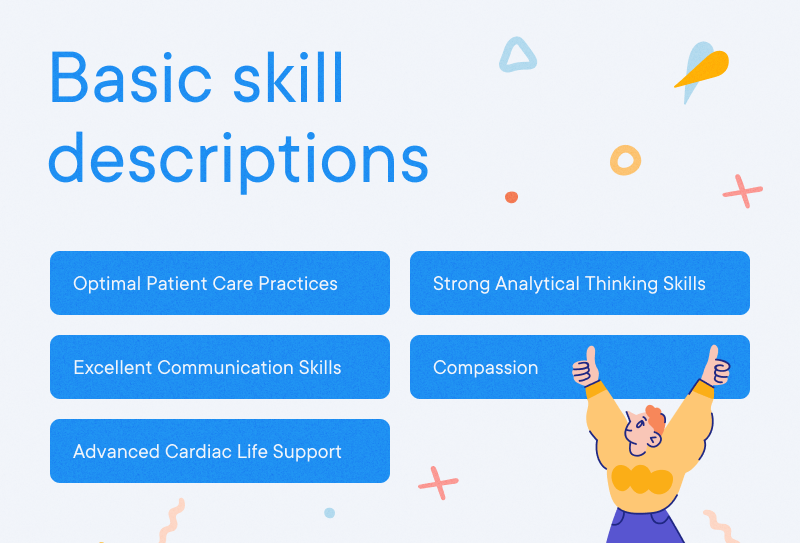
Resume layout and formatting: First impressions
The visual appearance of your nurse resume is what employers will notice first about your job application. That makes it the first impression they will have about you. A messy, cluttered resume format or a poorly organized resume layout that lacks clearly defined sections may hurt your chances of being considered for an amazing professional nurse opportunity.
What's the best resume format for a nurse?
Visual structure conveys character on your resume. Consider how your resume layout, design, and formatting could project attentiveness, a focus on details, and a certain measure of discipline.
A template can help you achieve this without looking too cold or rigidly formal (like the resume of a lawyer or auditor, for example). The Resume.io collection has a wide variety of resume styles to choose from, including those with the perfect balance of "disciplined" and "emotional." We suggest the Paris, New York, Stockholm, and Santiago templates as a great fit for a nurse resume.
These templates can also protect you from being unwittingly sabotaged by formatting that may not translate well to electronic systems, or is not readable at all.
Use field-tested templates backed by metrics. These samples are beautifully designed and attention-grabbing. These templates will also help you avoid hidden technical pitfalls.
The nurse job market
So, what is the nurse job market like nowadays? The simple answer: it's wide open for candidates.
Developed countries have a high demand for nurses. In 2017, the American Nurses Association (ANA) projected that the U.S. will need one million more registered nurses by 2022 to fulfill the nation's needs. By 2022, when RN retirements will have opened up more than a half-million replacement positions, there will be far more registered nurse jobs available than any other profession, at more than 100,000 per year.
That nursing shortage has taken an added toll on the health and well-being of nurses during the pandemic crisis. According to a March 2021 survey report by the American Nurses Foundation, the ANA’s charitable and philanthropic arm, 41% of nurses stating they plan to leave the profession cited insufficient staffing as a reason. The number was higher — 48% — among nurses who treat COVID-19 patients directly.
The BLS projects a 9% growth in the job market for nurses between 2020 and 2030, as fast as the average occupation.
Profile
Esteemed Nurse Manager with over six years of comprehensive healthcare experience, including pivotal roles in emergency, ICU, and various specialized units. Renowned for advanced patient care leadership, strategic healthcare management, and spearheading initiatives that enhance clinical protocols and patient outcomes. Instrumental in mentoring medical staff, driving interdisciplinary collaboration, and executing quality improvement strategies with a profound impact on healthcare delivery.
Employment History
Nurse Manager, St. Joseph's Medical Center
October 2024
- Led a team of nursing staff to deliver exceptional patient care, ensuring adherence to hospital protocols and patient safety standards
- Oversaw patient admission and discharge processes, improving efficiency by 20%
- Collaborated with interdisciplinary teams to optimize treatment plans and patient outcomes
- Acted as a liaison between nursing staff, physicians, and hospital administration to facilitate communication and streamline operations
Senior Float Nurse, University of Iowa Medical Center
September 2022 - September 2024
- Provided critical support across various units including ER, Rehab, and Med-Surg, adapting to high-pressure environments and ensuring continuity of care during peak patient loads
- Developed and implemented patient care plans in collaboration with healthcare teams, contributing to the medical center's high standard of care
- Mentored junior nurses and staff, enhancing team capabilities and fostering a culture of excellence in patient care
Nurse Extern, Mayo Clinic of Austin
August 2021 - August 2022
- Assisted with obtaining personal information of patients and prepared paperwork in a timely and efficient manner.
- Worked to maintain a neat and functional admitting department, conducive to high quality care.
- Provided quick assessments and helped to determine treatment needed for patients requiring critical care.
Skills
- Patient advocacy
- Strong interpersonal communication skills
- Teamwork skills
- Trauma and ER experience
- Knowledgeable in medical terminology and procedures
Education
Master of Nursing, Iowa State University, Iowa City
January 2015 - August 2018
- Graduated with a 3.8 GPA.
Bachelor of Biology, University of Arizona, Phoenix
August 2011 - May 2015
- Member of Student Nursing Association.
Key takeaways for a nurse resume
- To get an amazing job instead of a mediocre one, your resume needs all the advantages available.
- Start the resume writing process armed with knowledge and the appropriate technological tools.
- Each resume section should be tailored to the job listing wherever appropriate.
- Whenever possible, provide details on your past work experience.
- Pay special attention to the way your nursing credentials are organized in the education section.
- Write out your skills based on research and the job listing.
- Your resume layout is incredibly important. Make sure your format is visually pleasing and conforms to the ATS. Resume templates can help.
If you want the perfect tool to save yourself time and win your dream nurse position, use our helpful resume builder with field-tested resume templates!
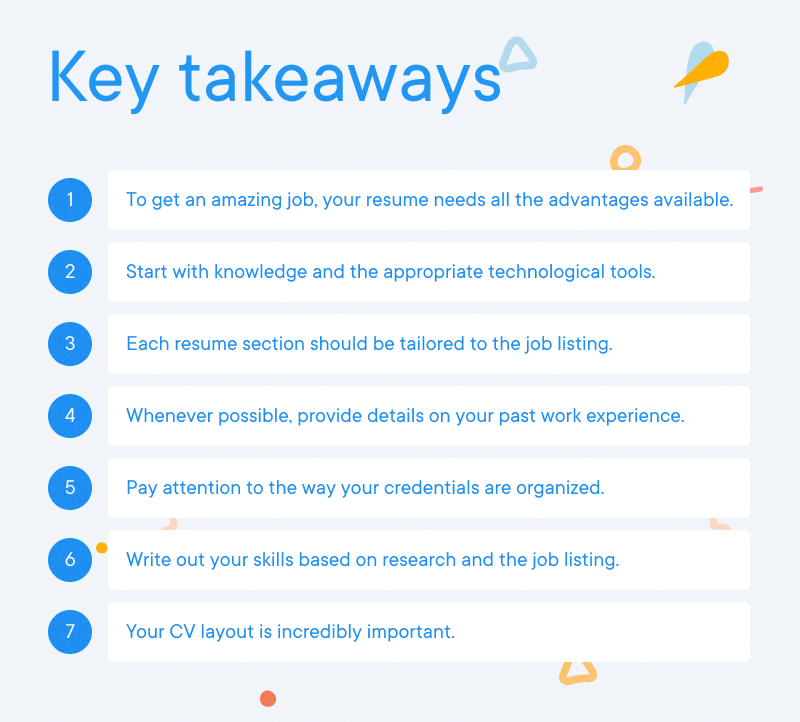


.jpg)

.jpg)











